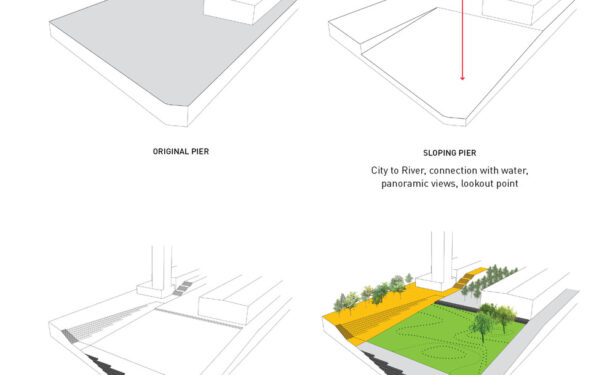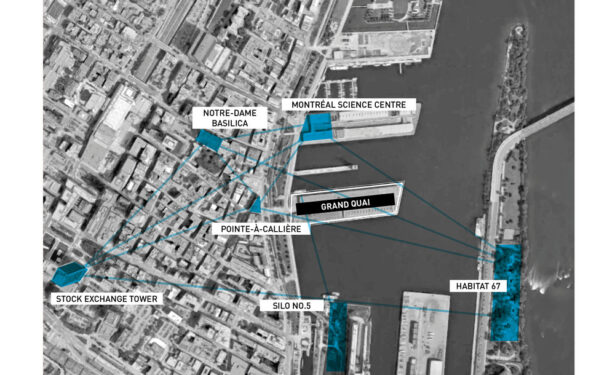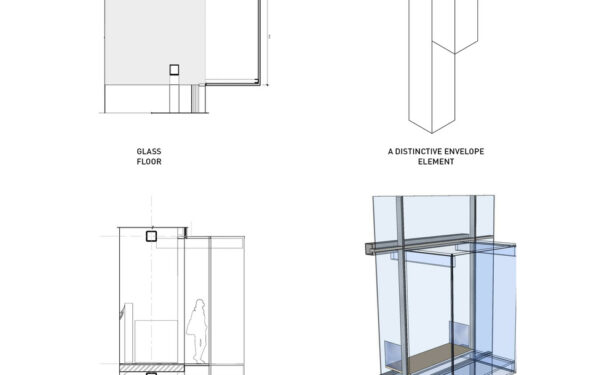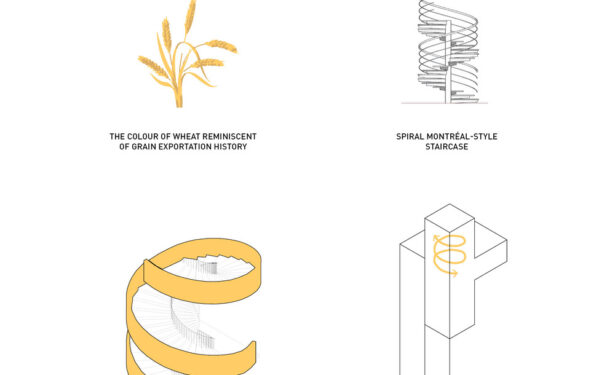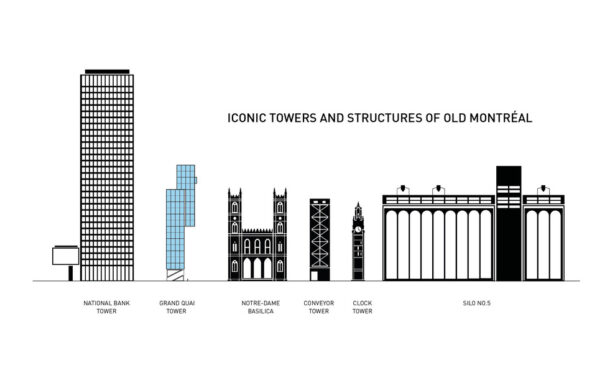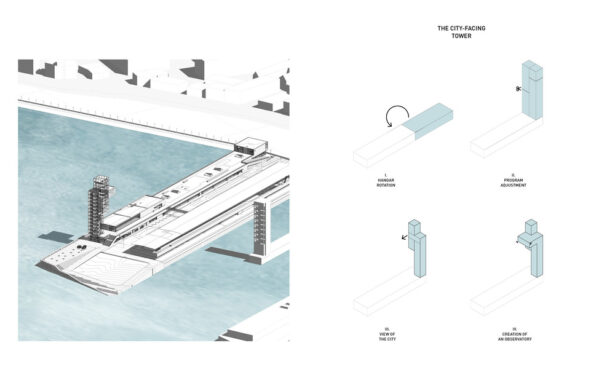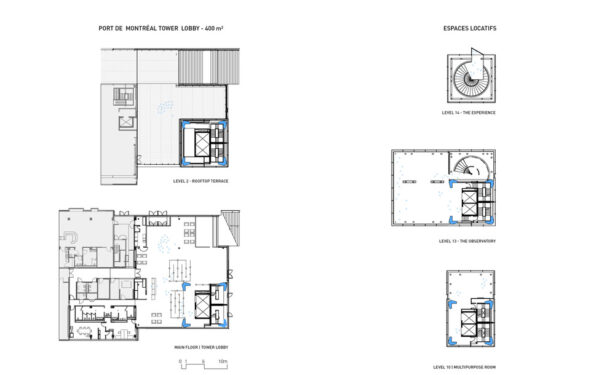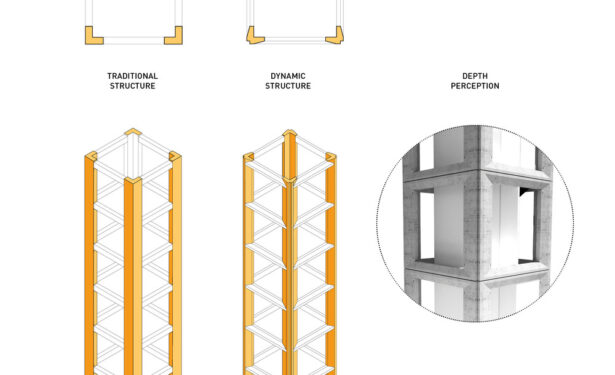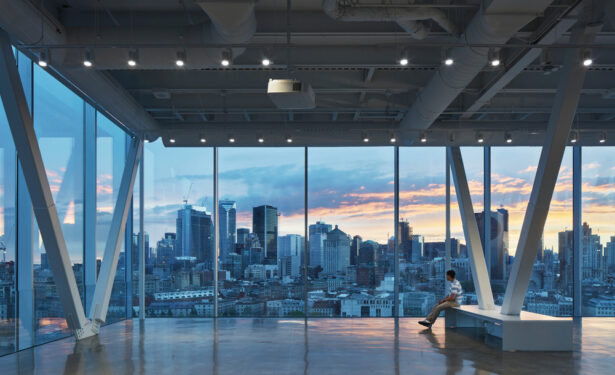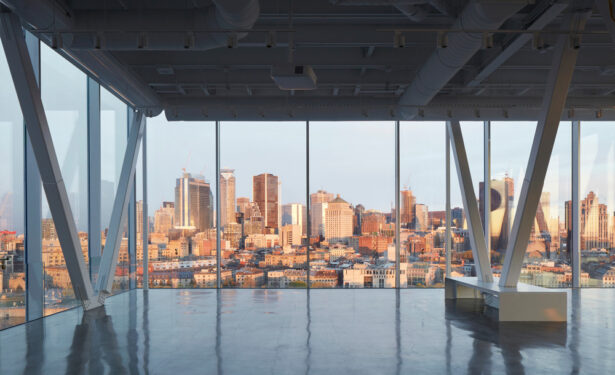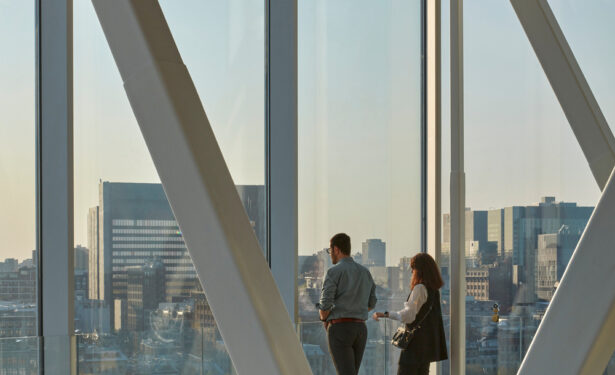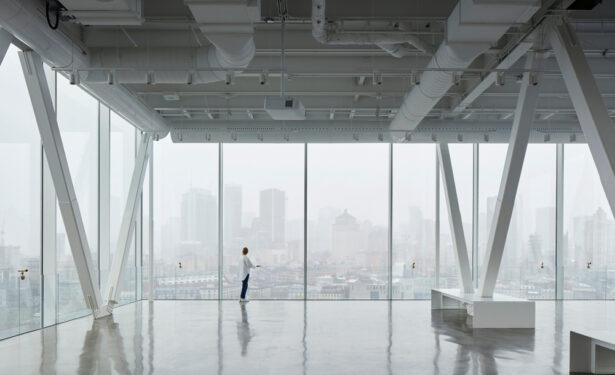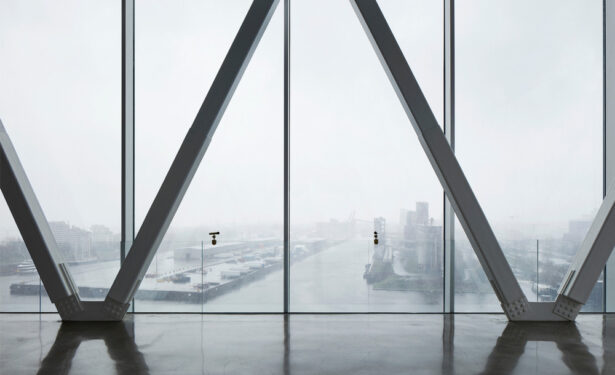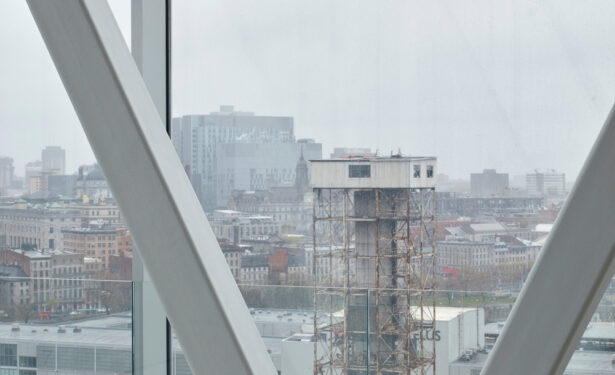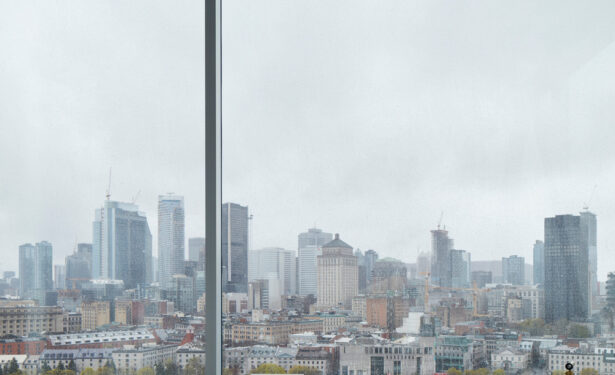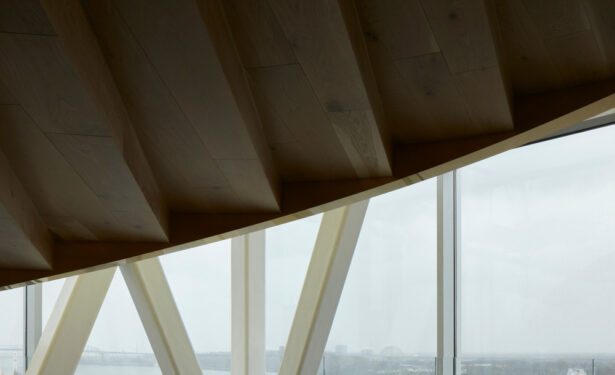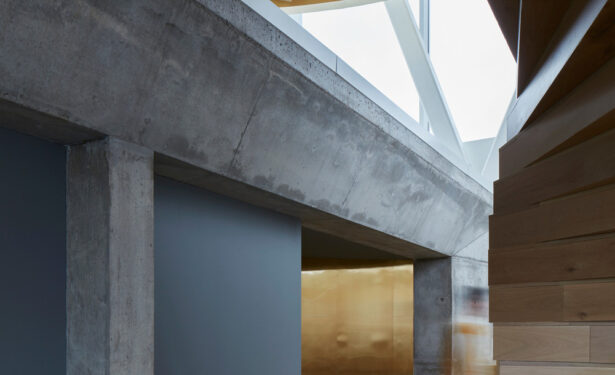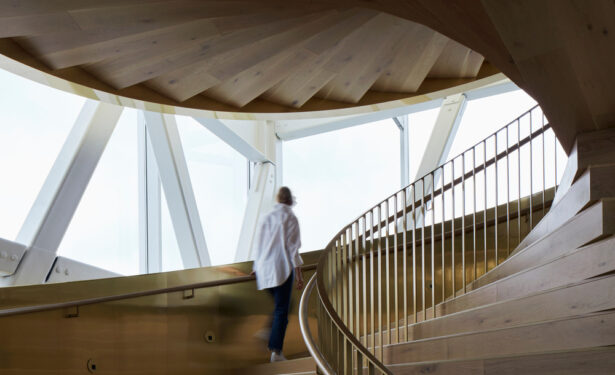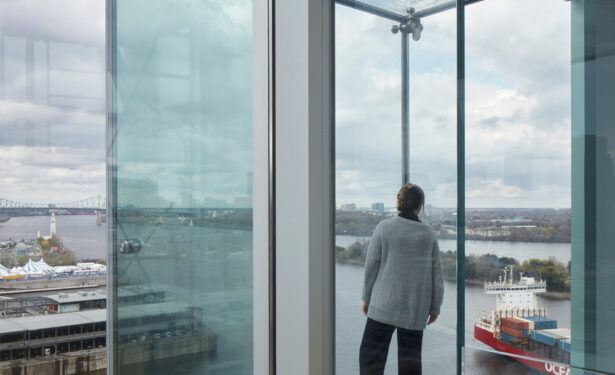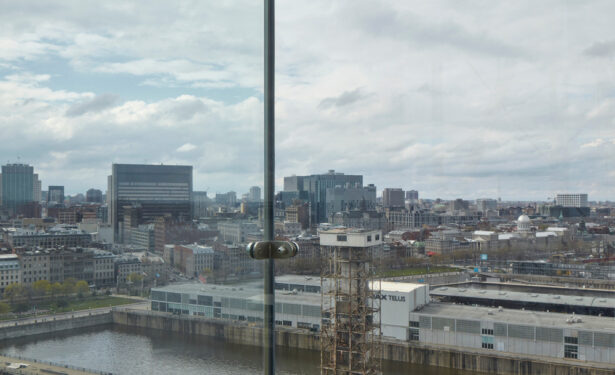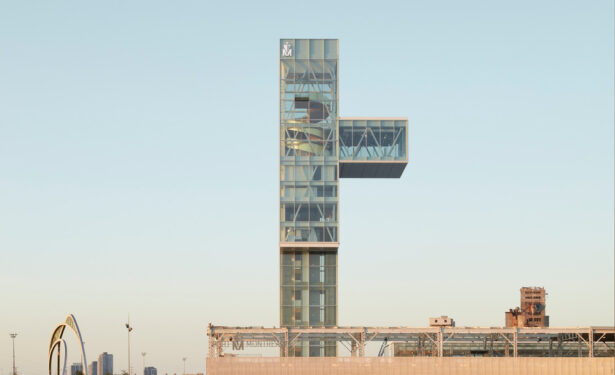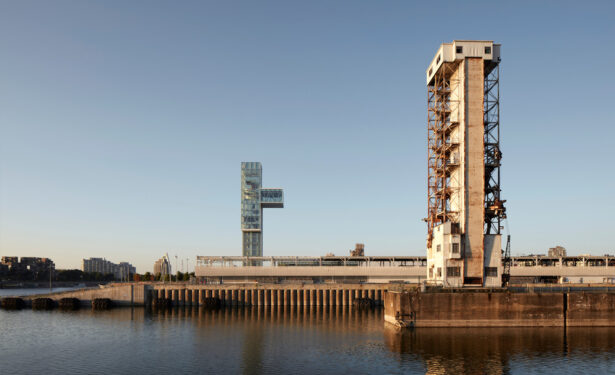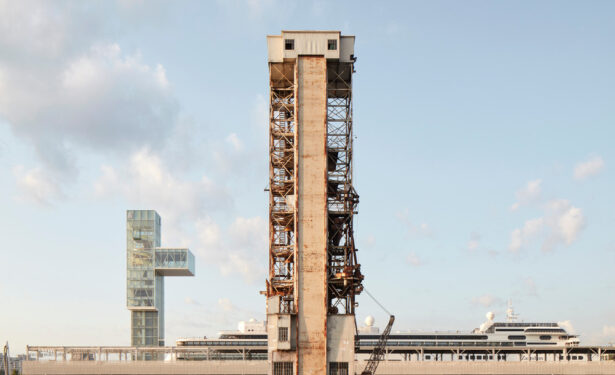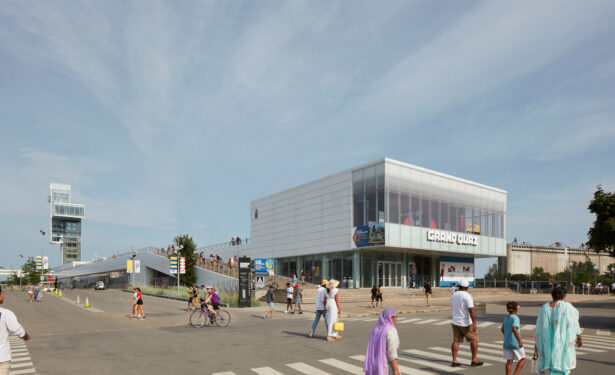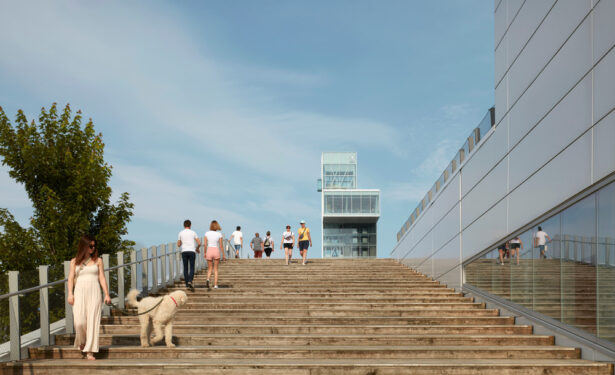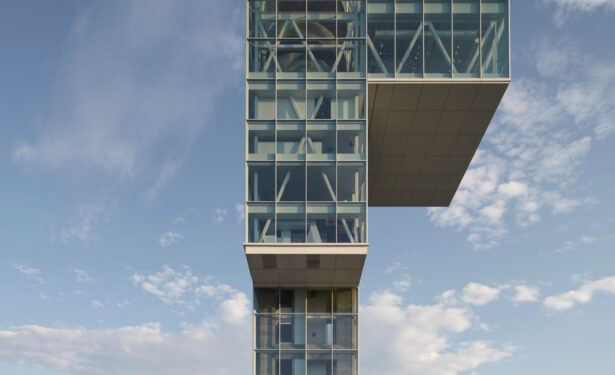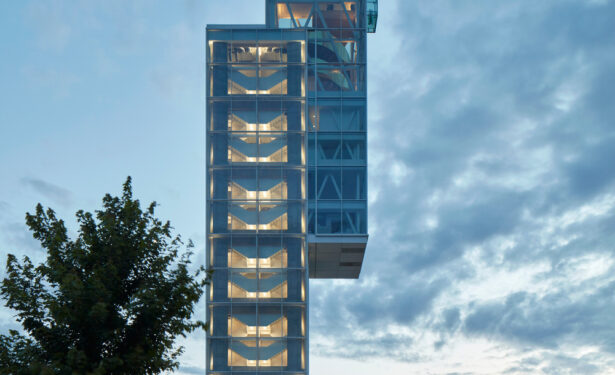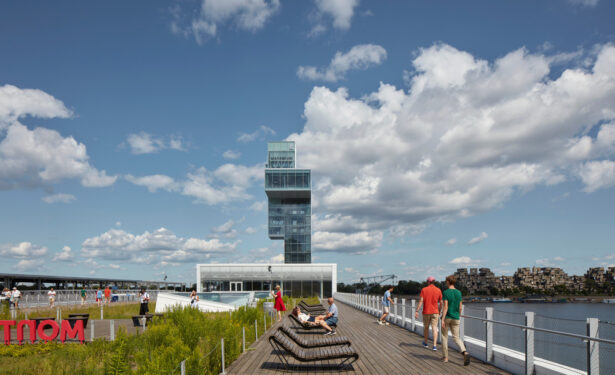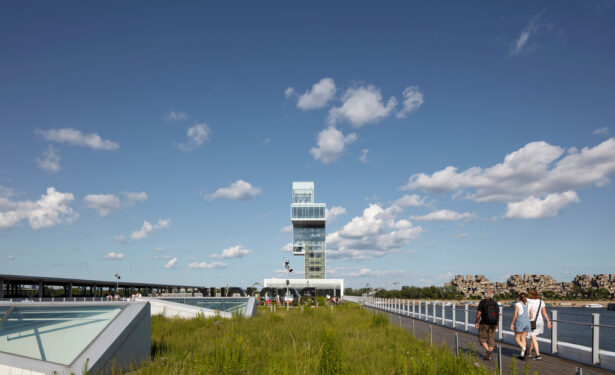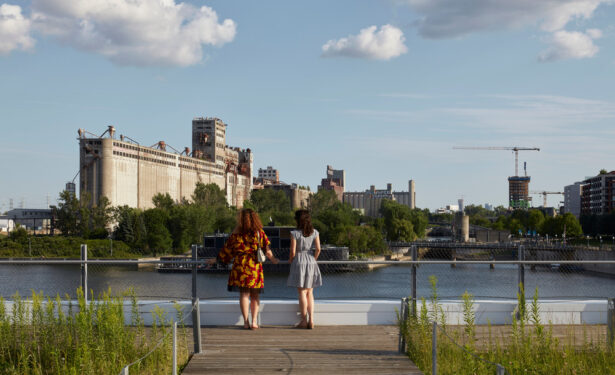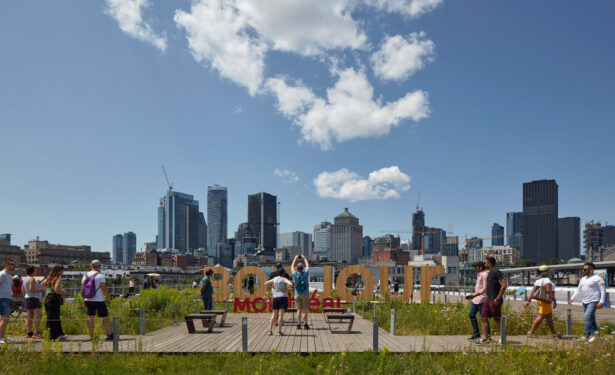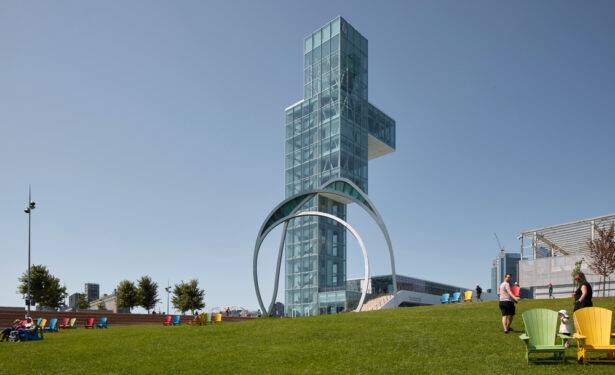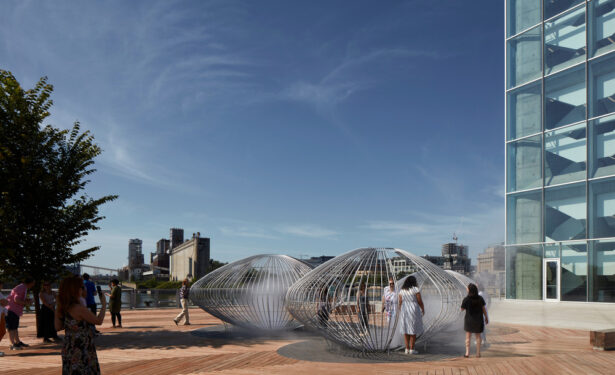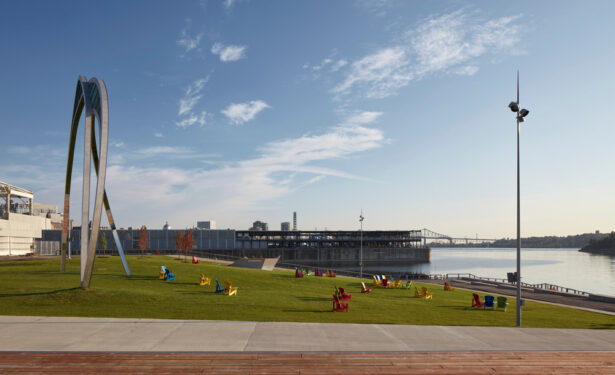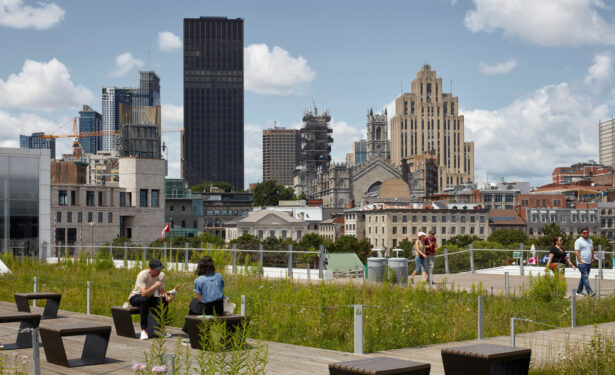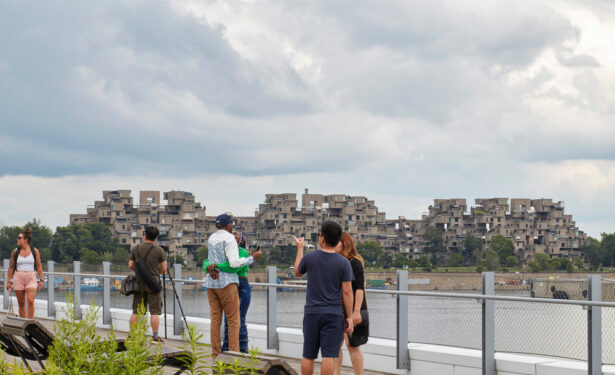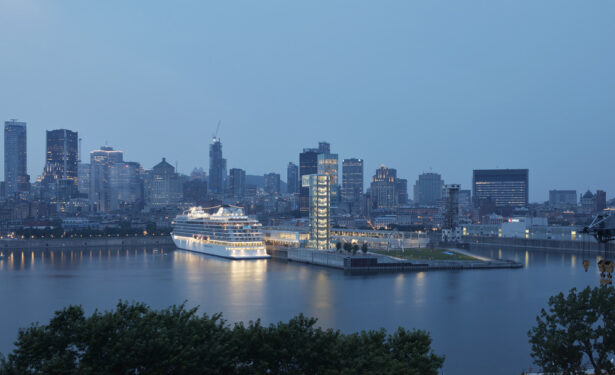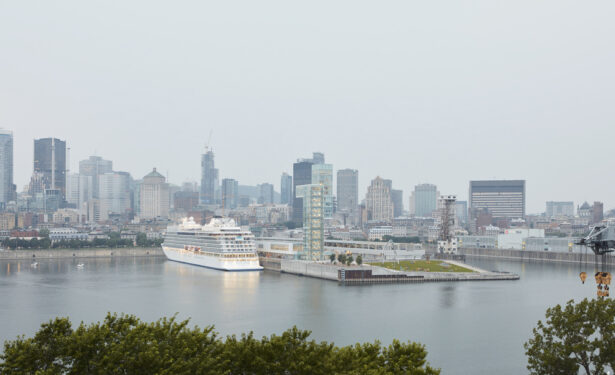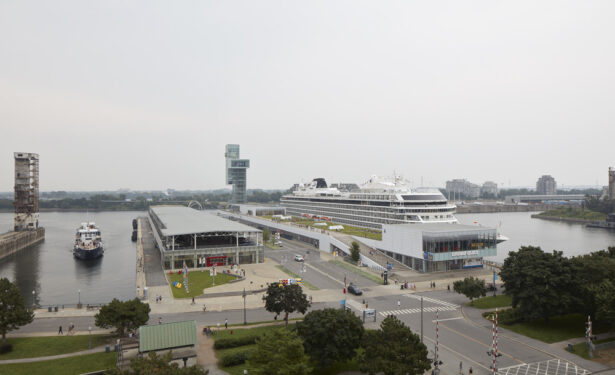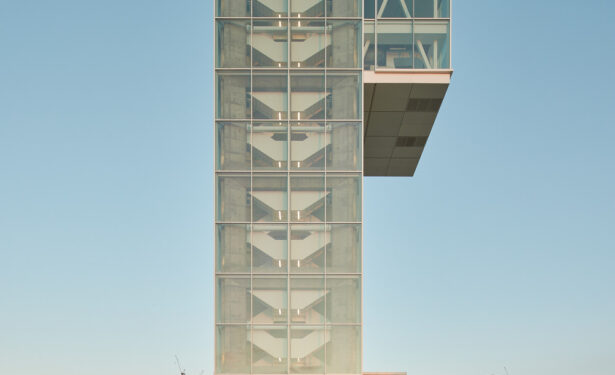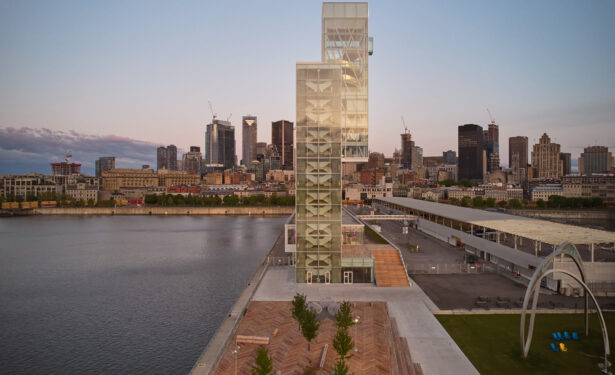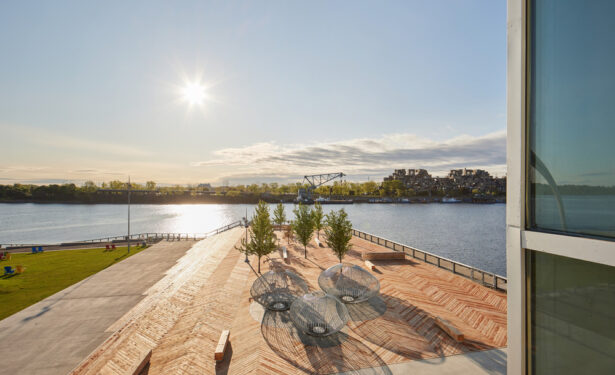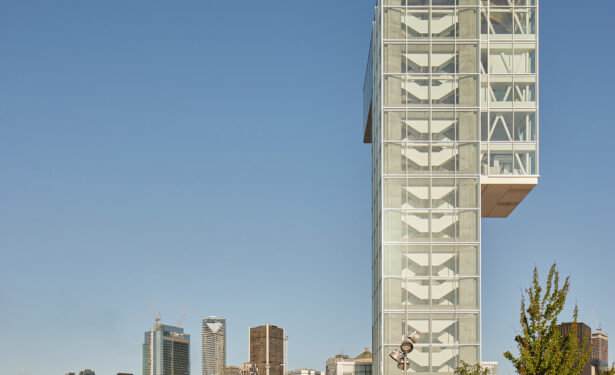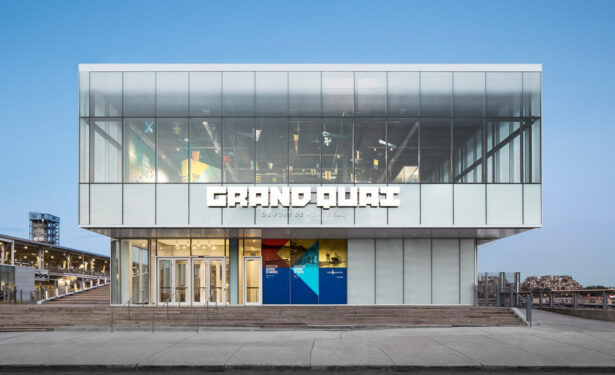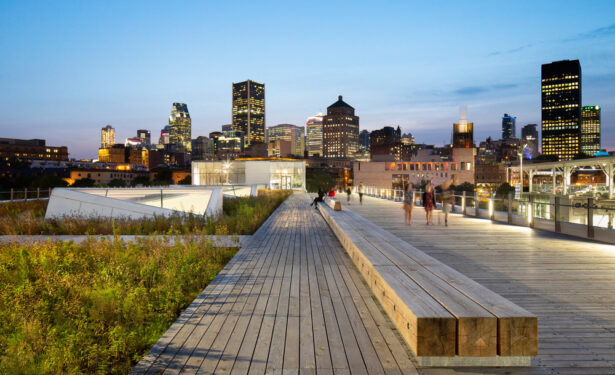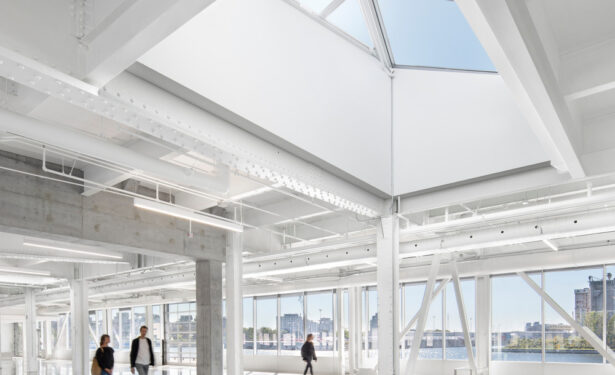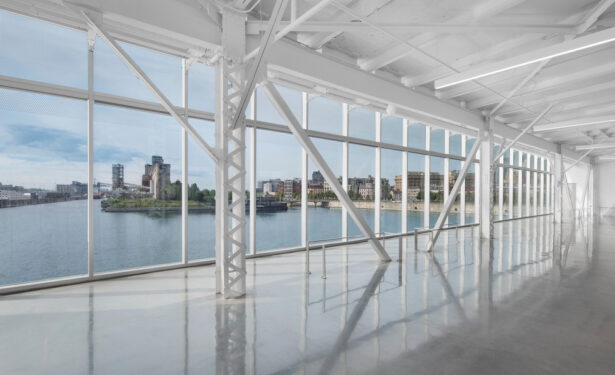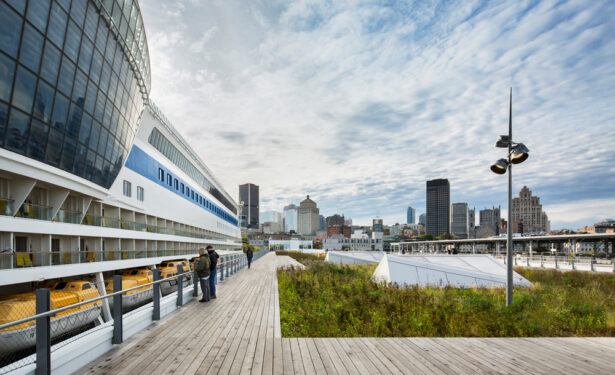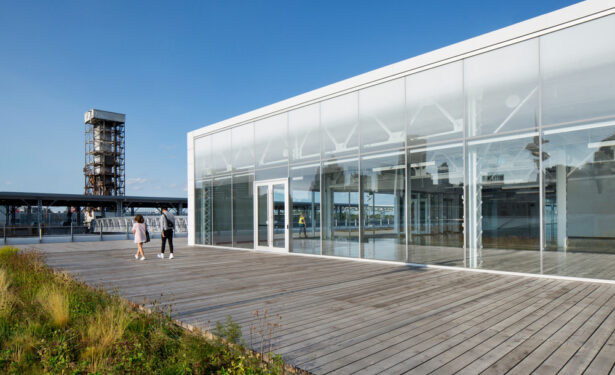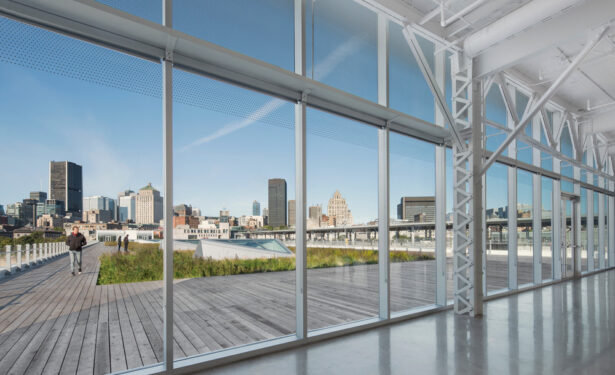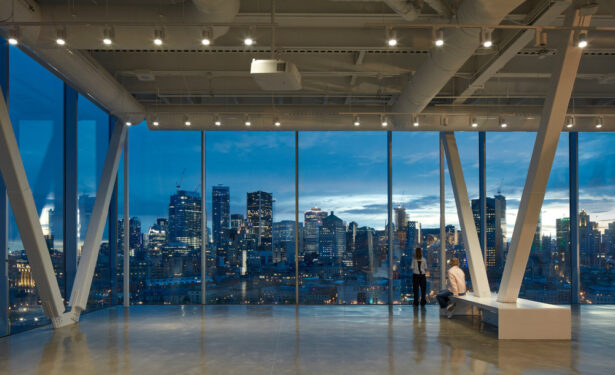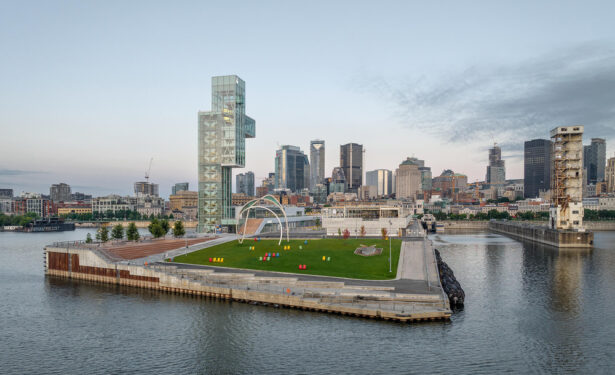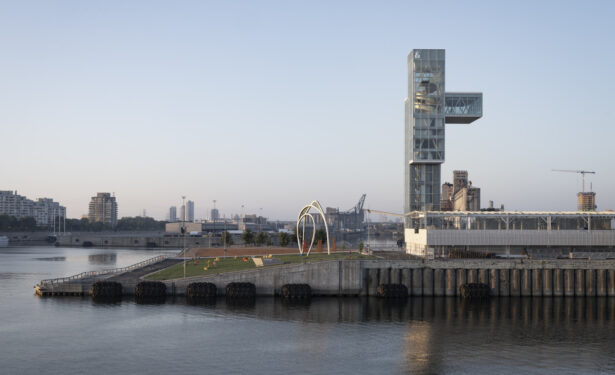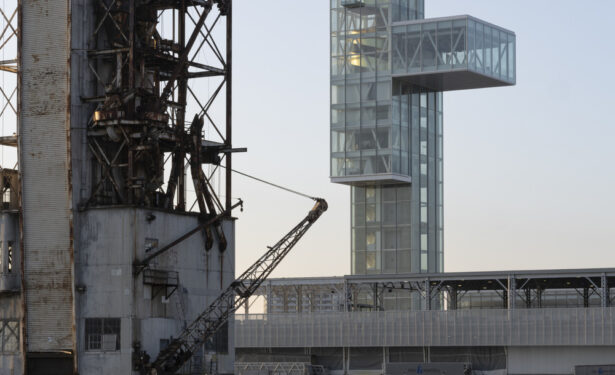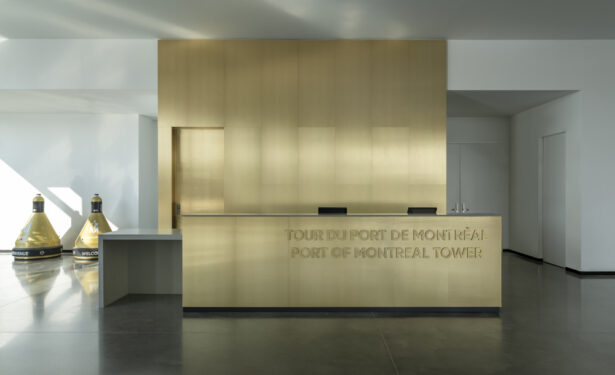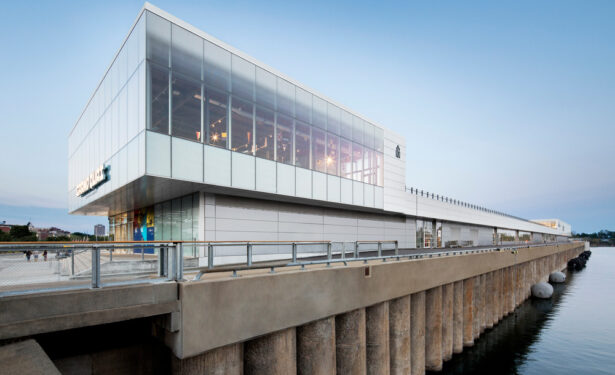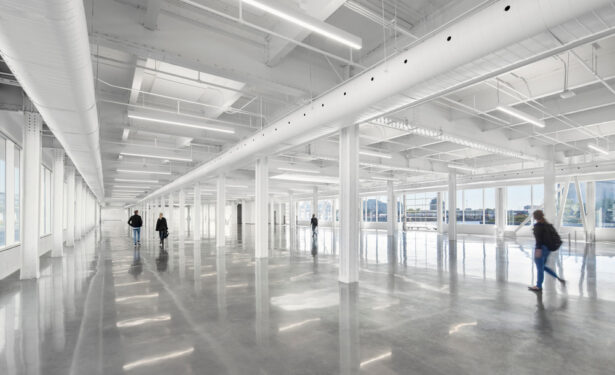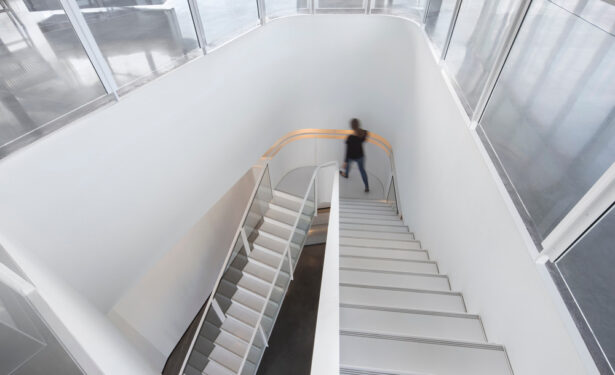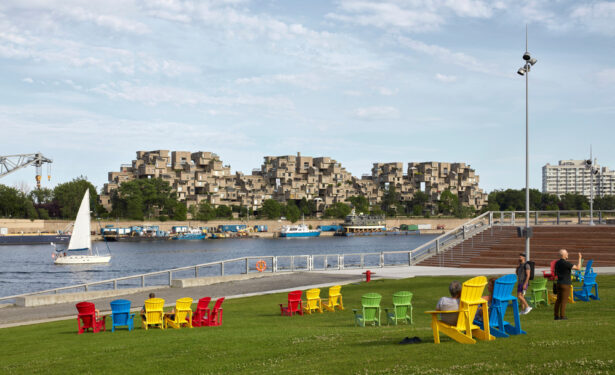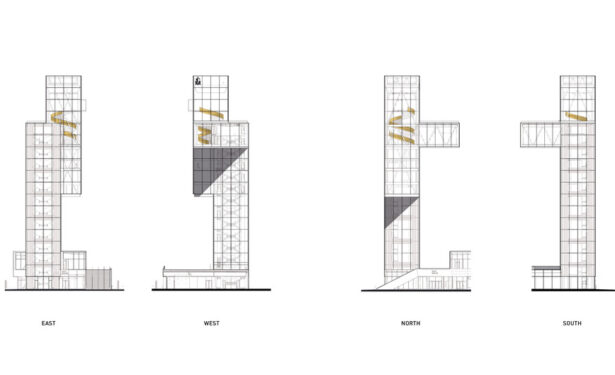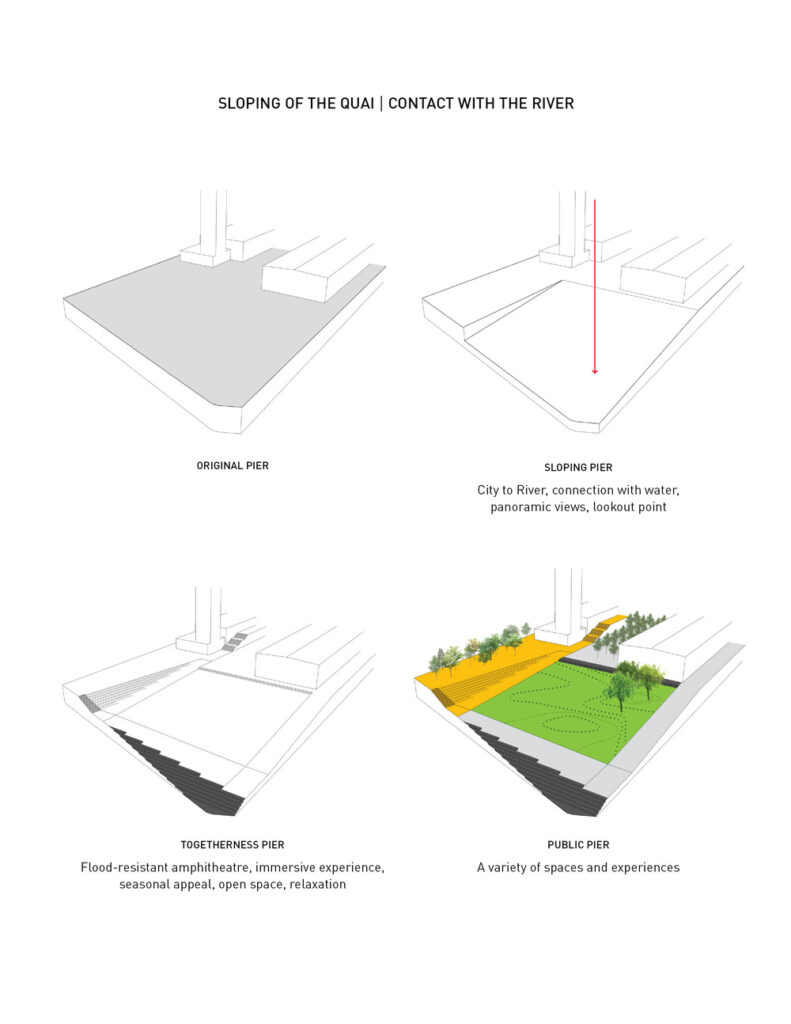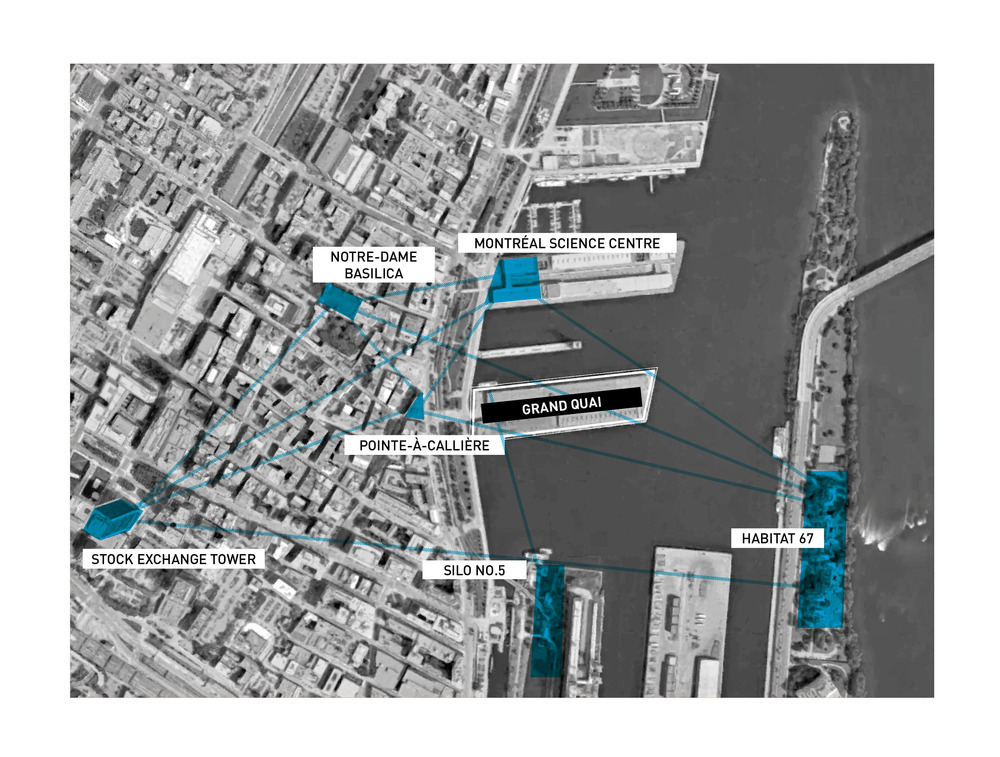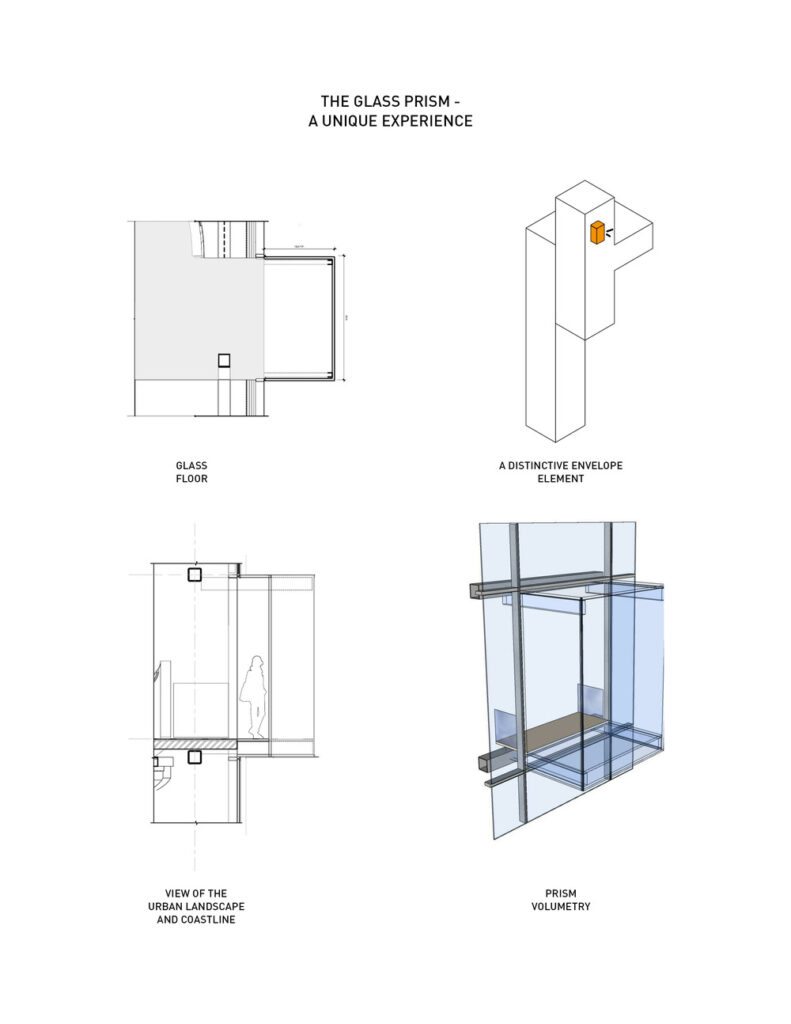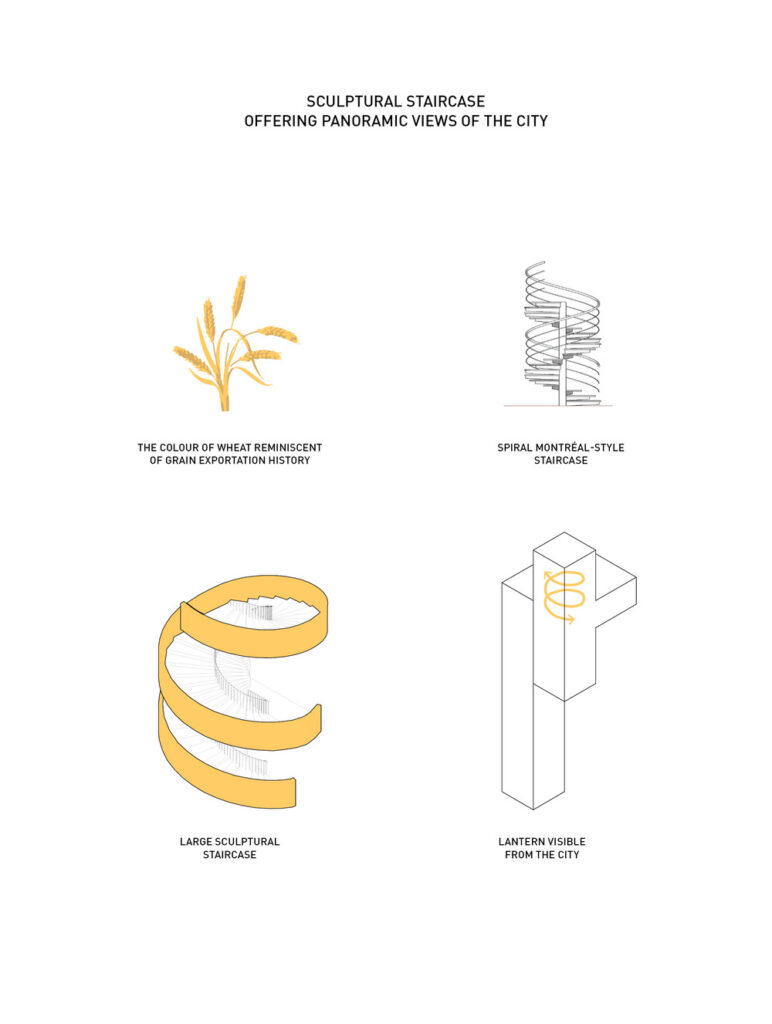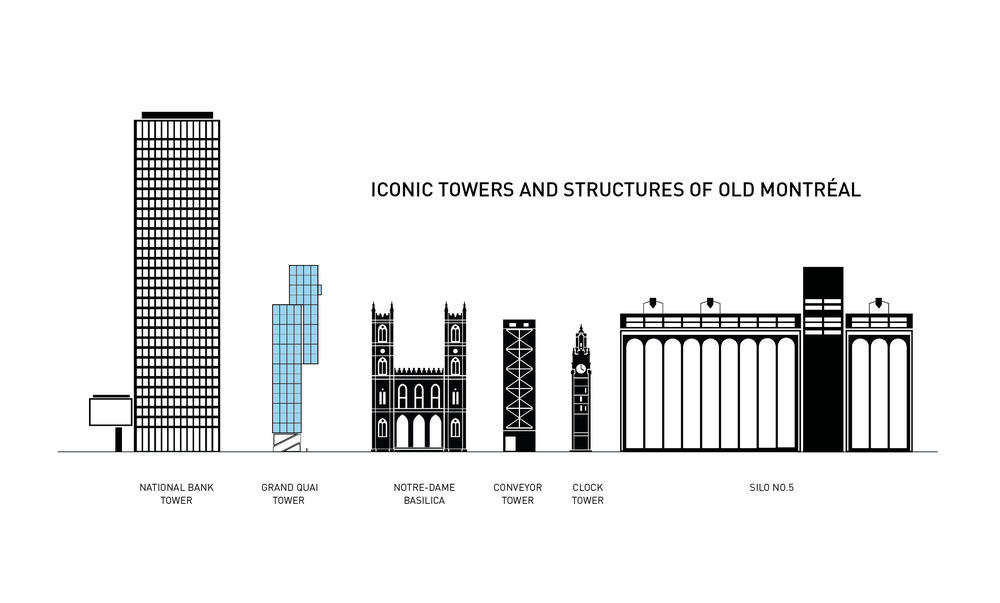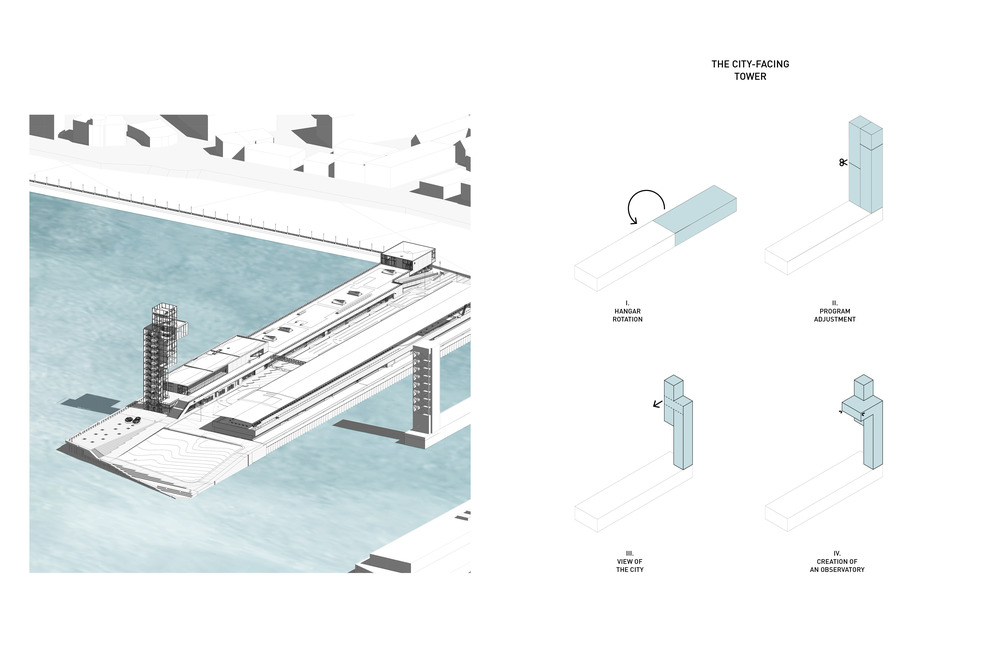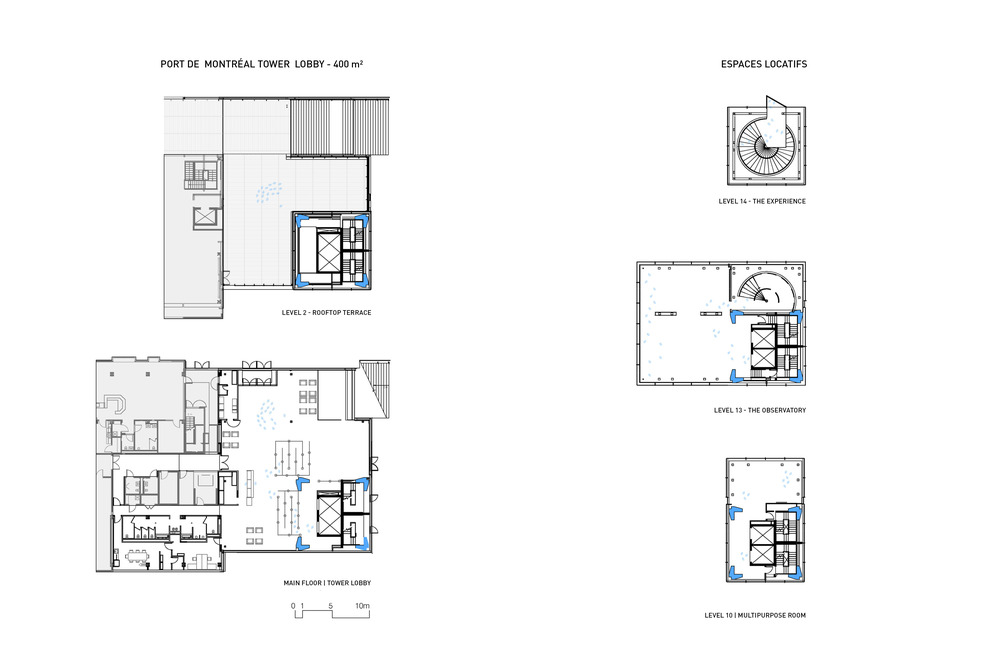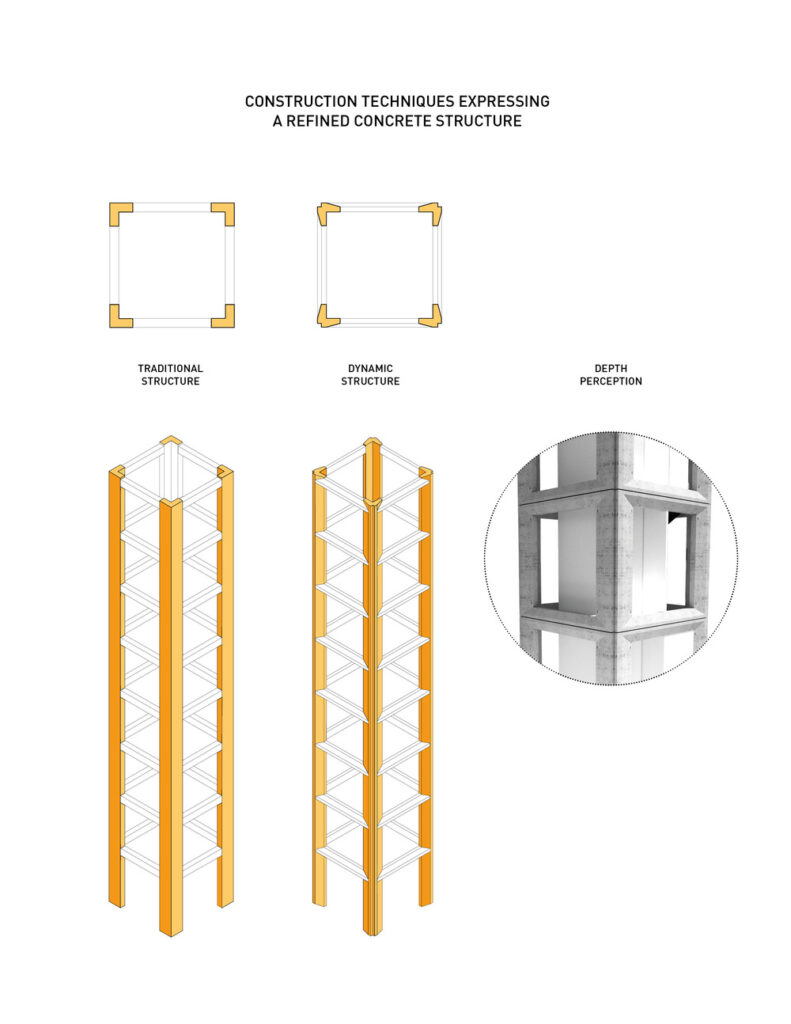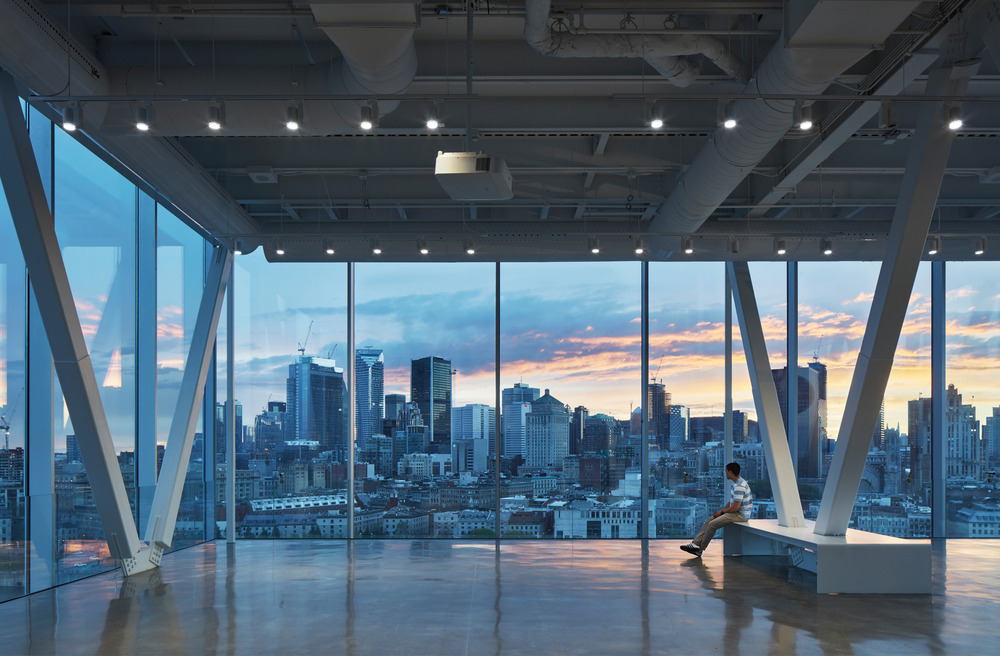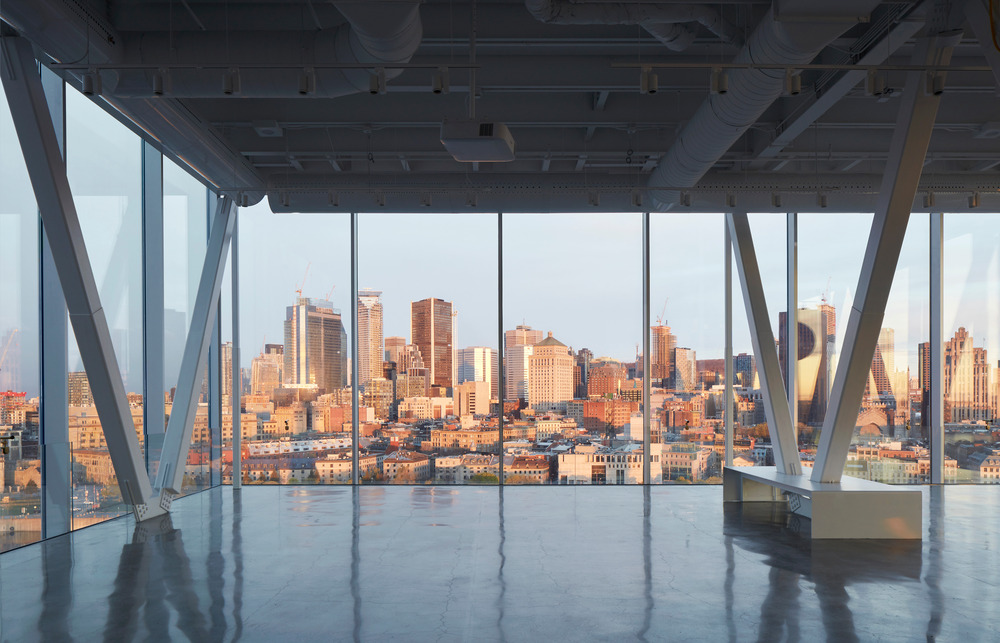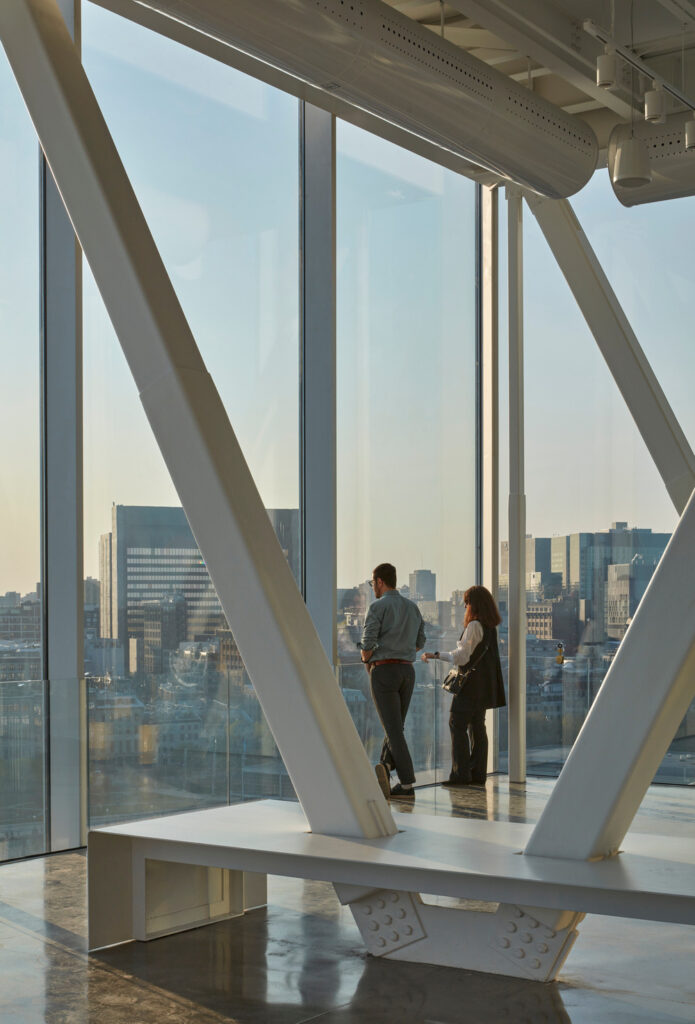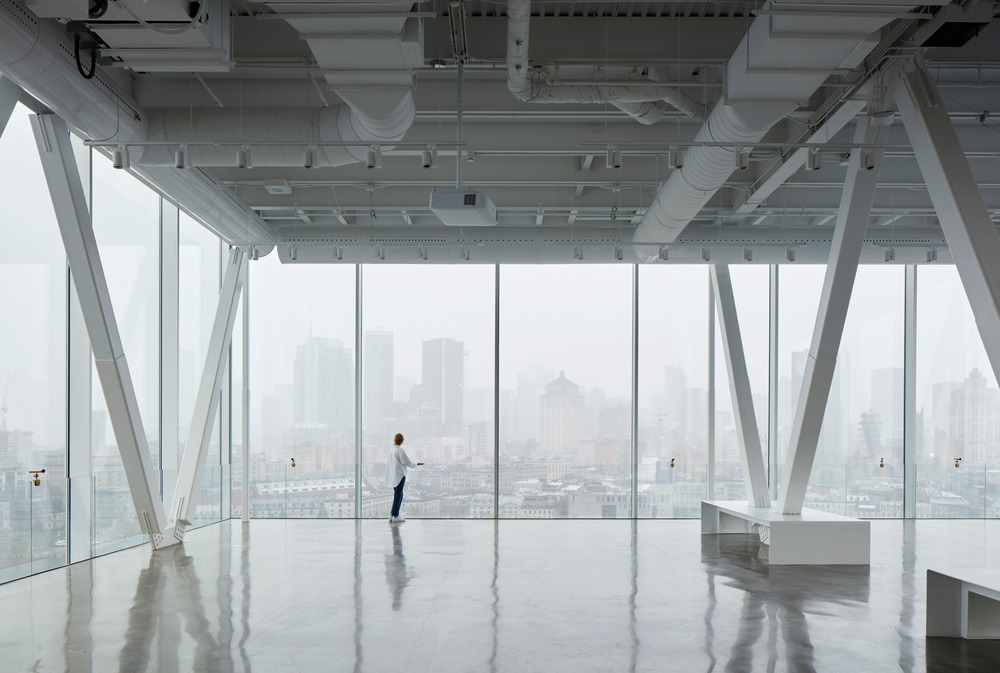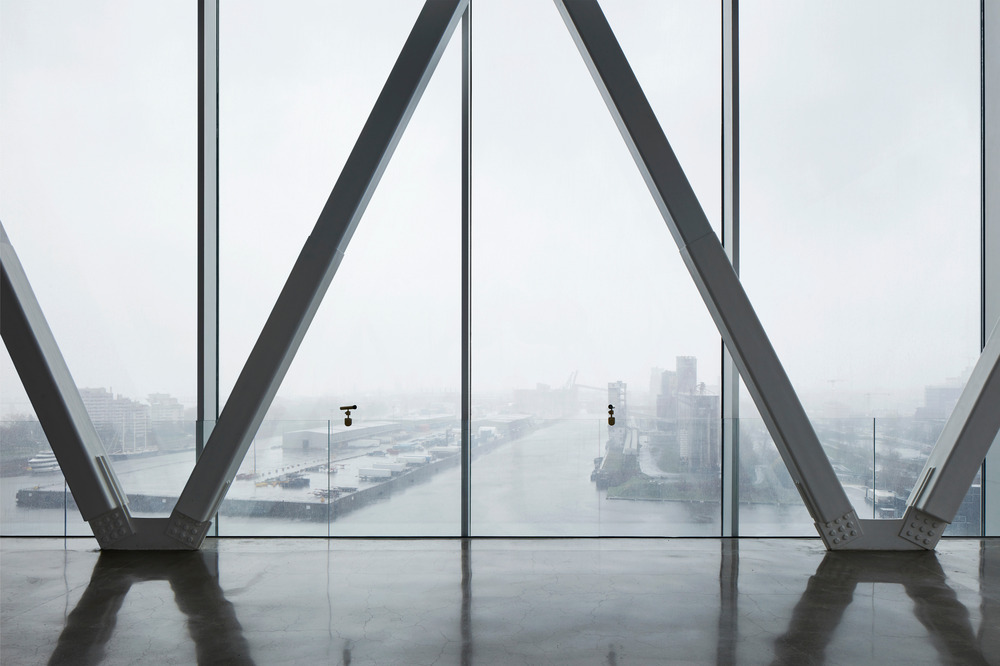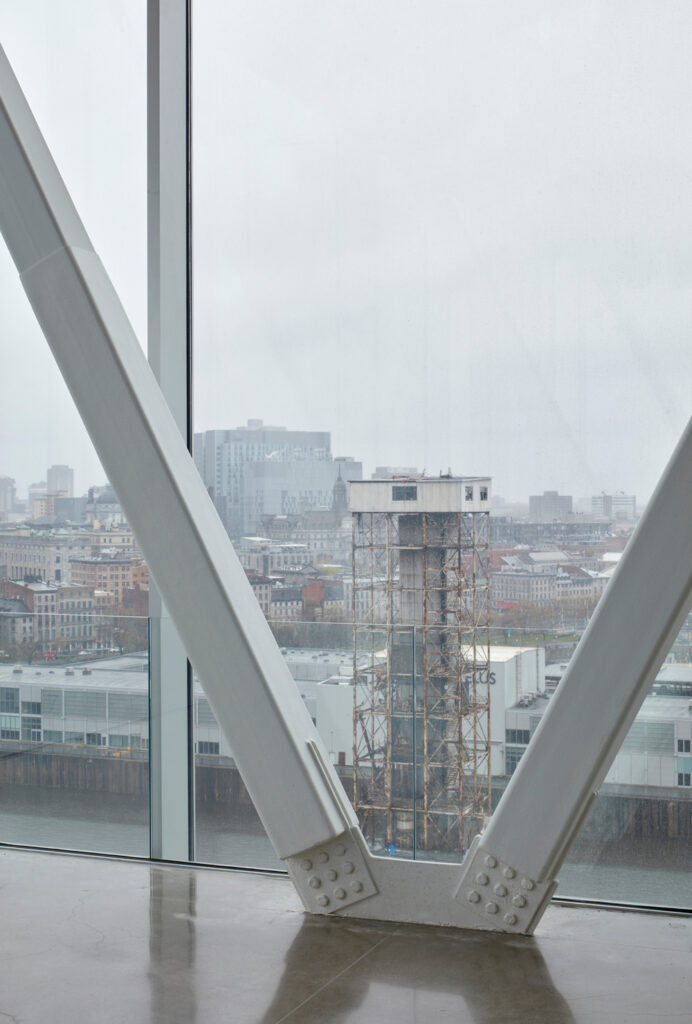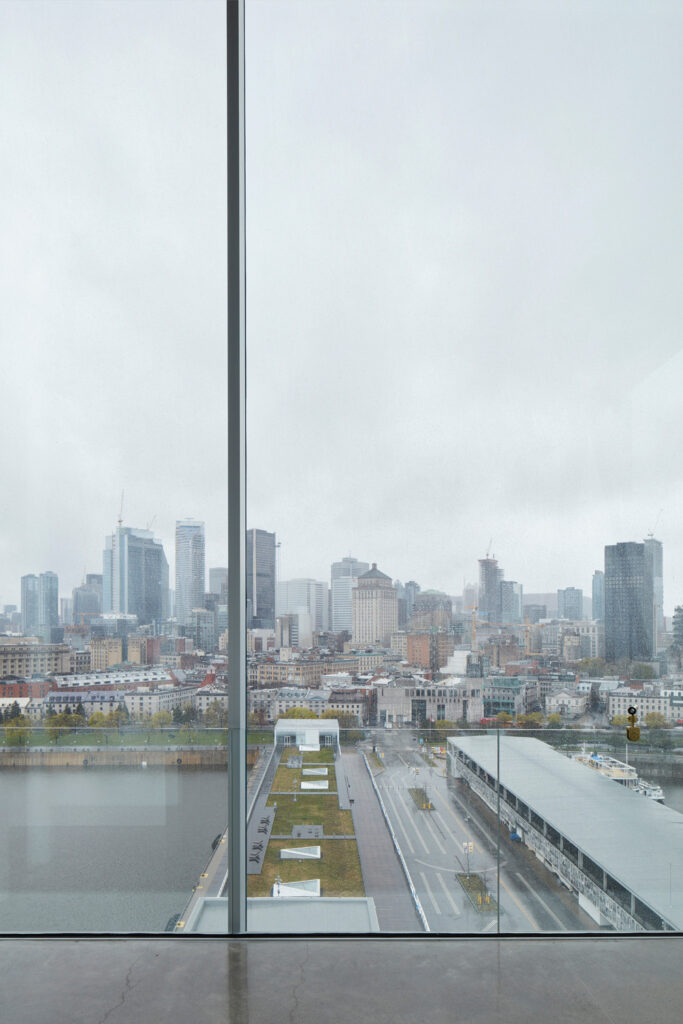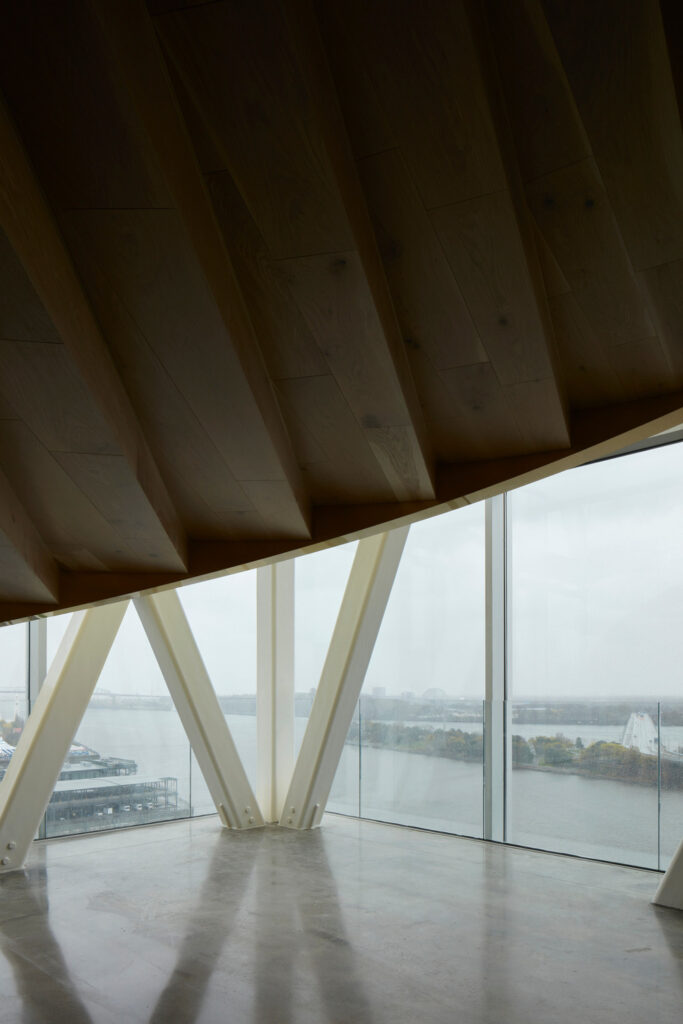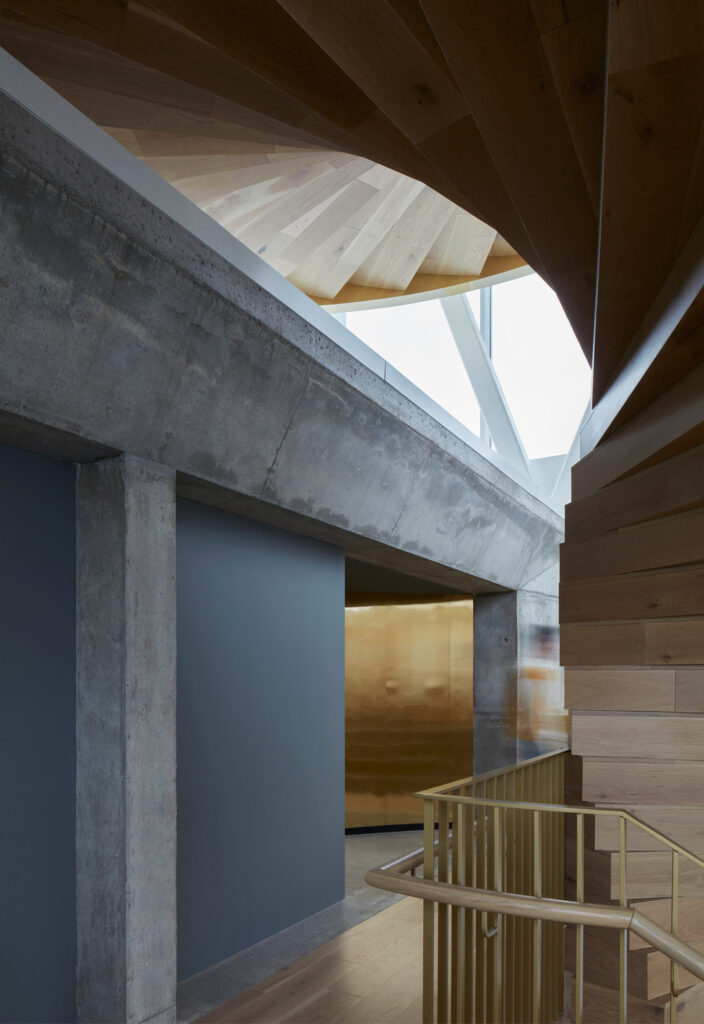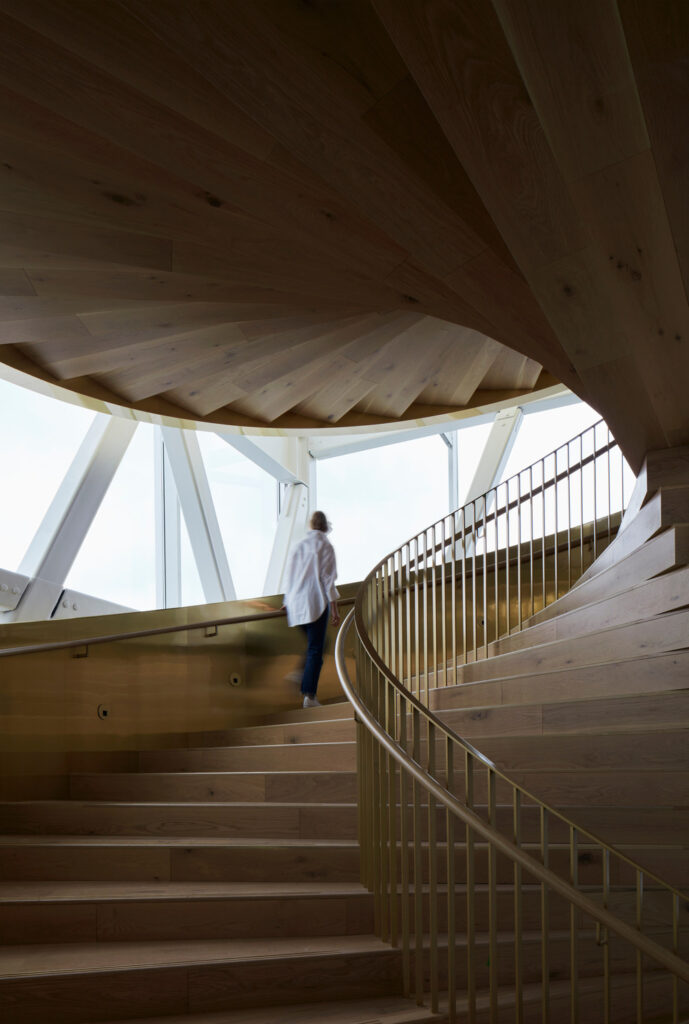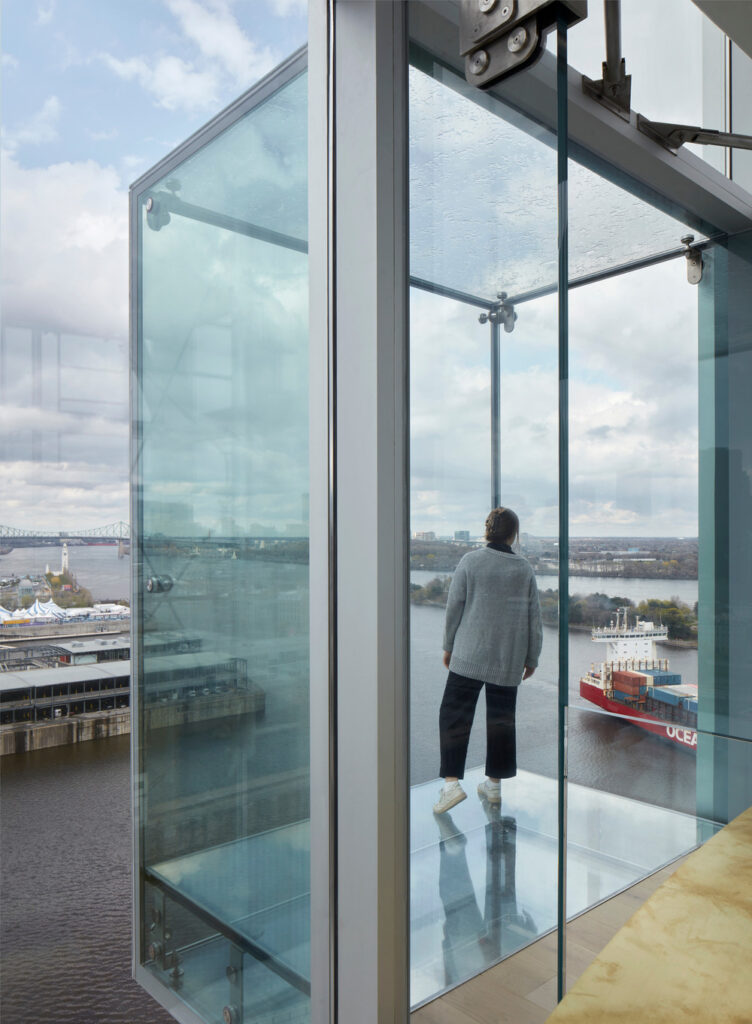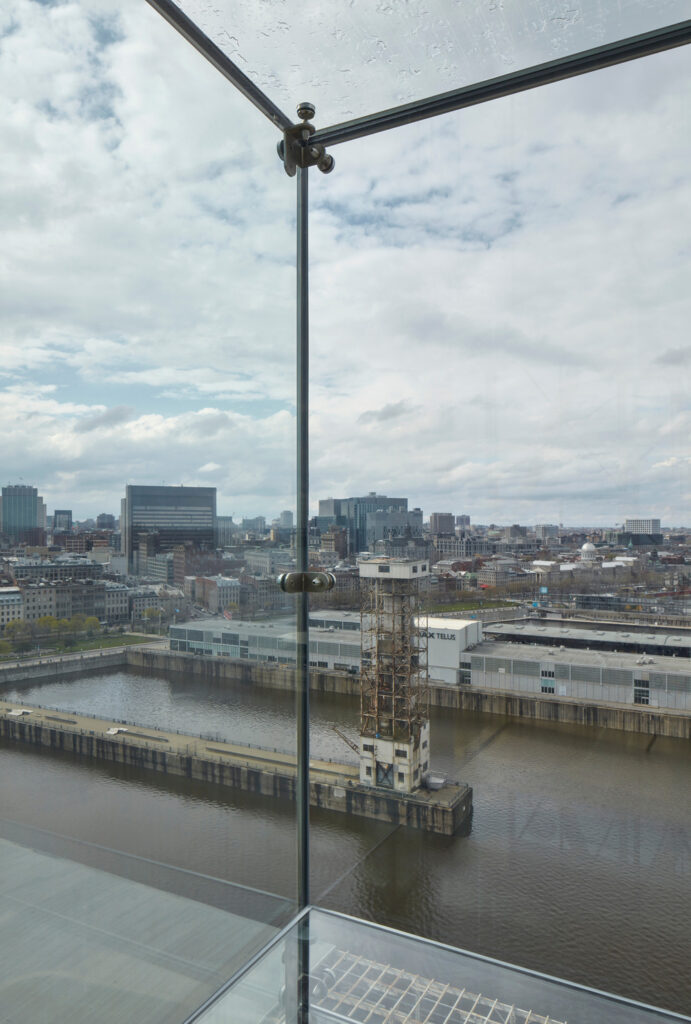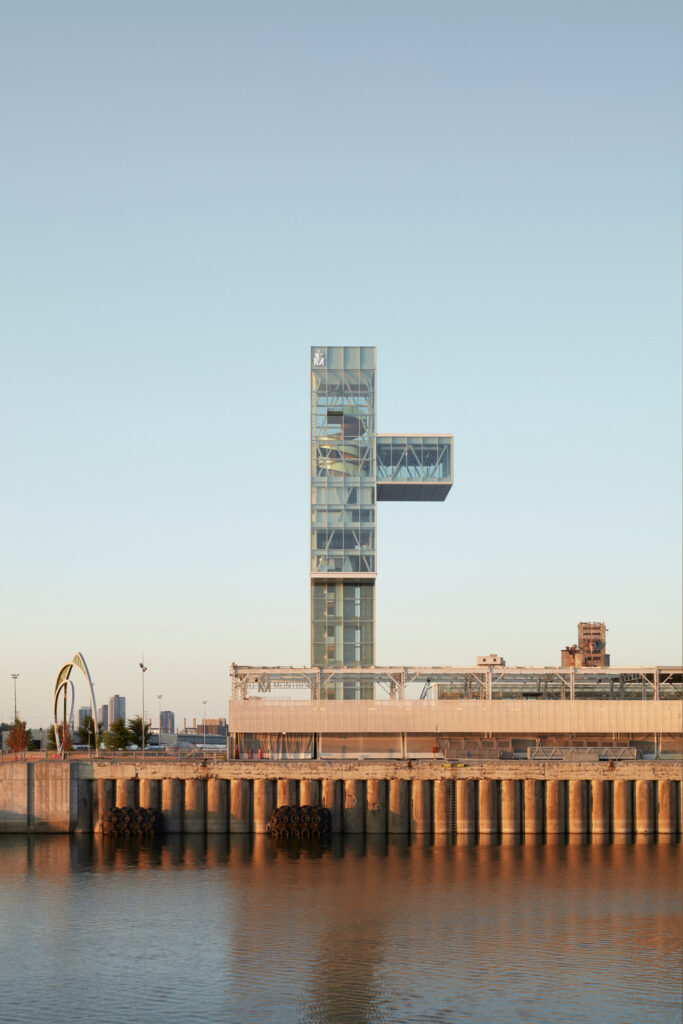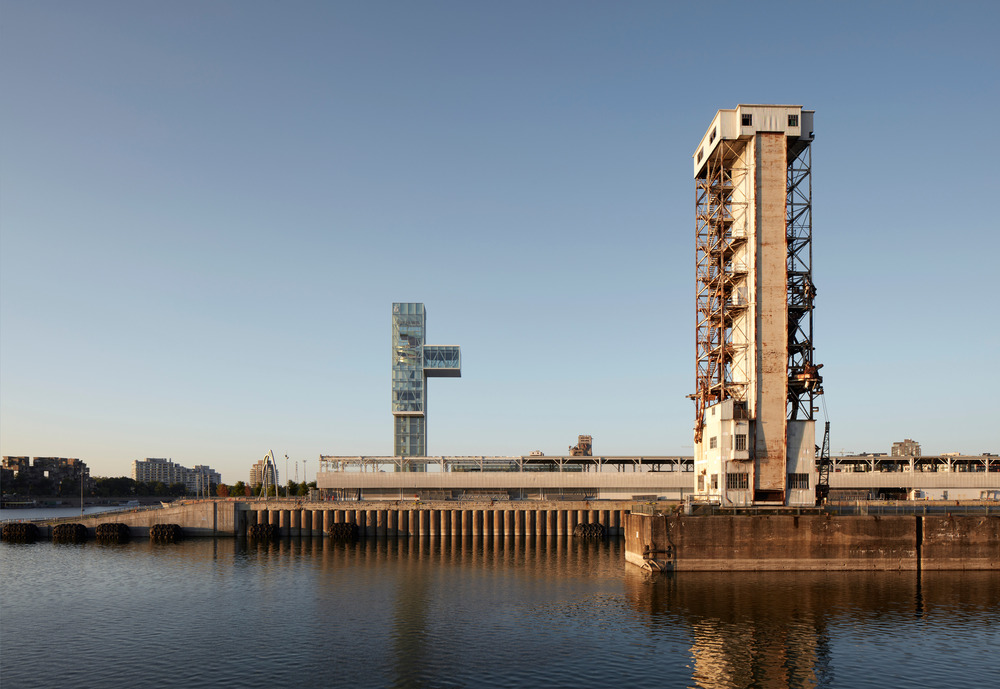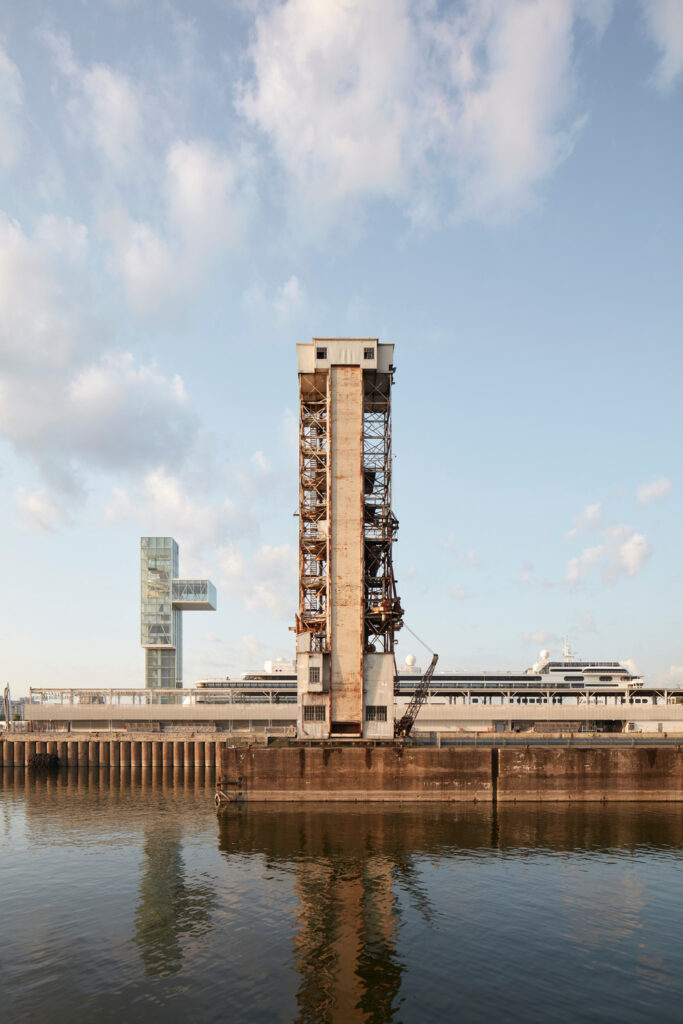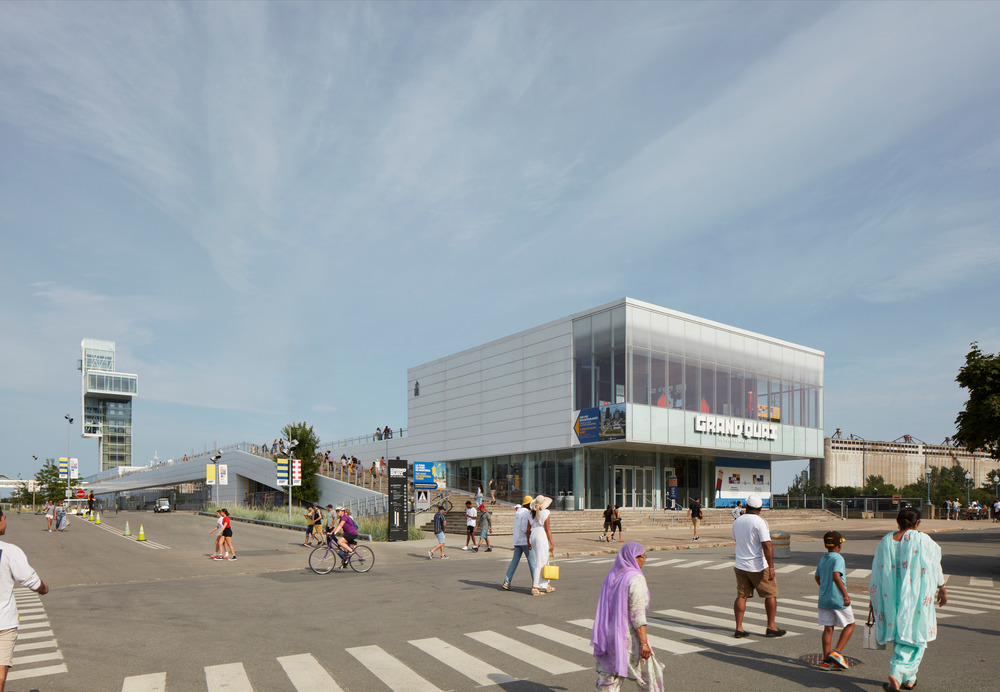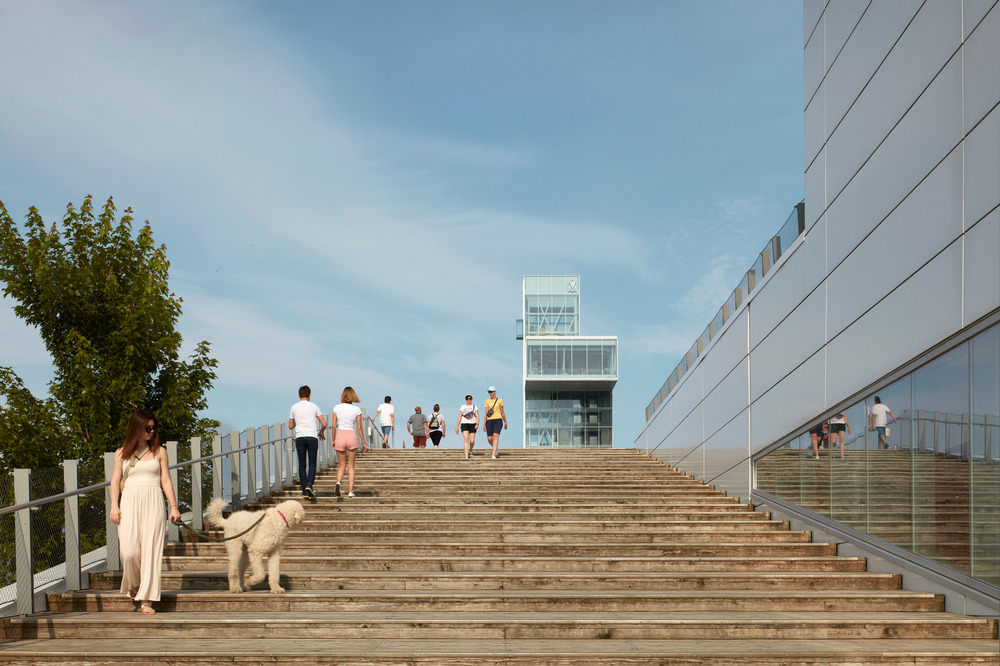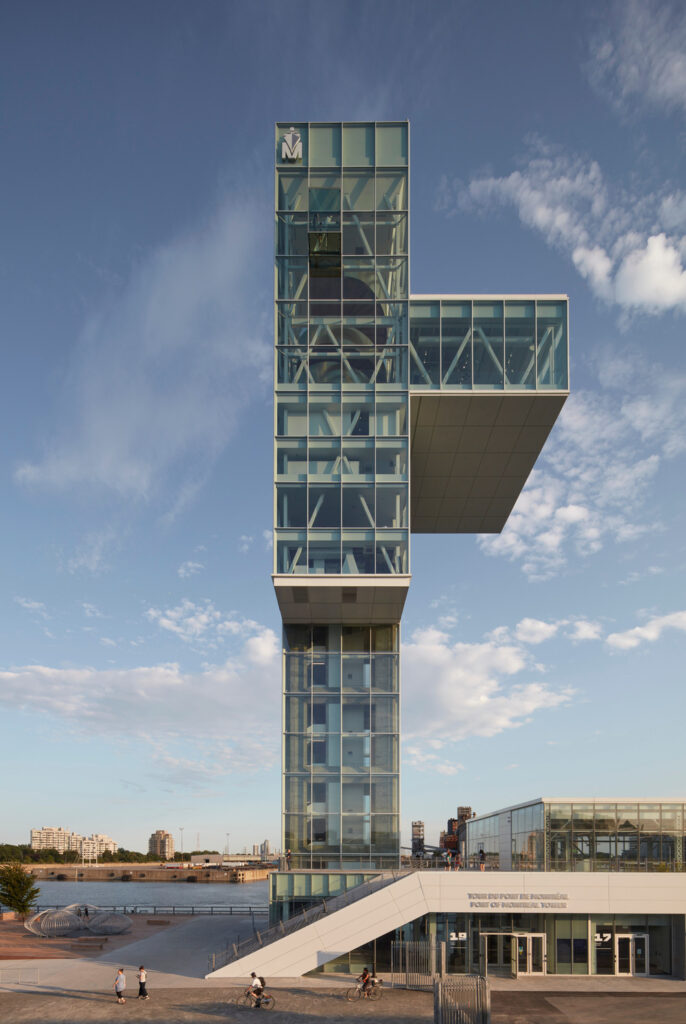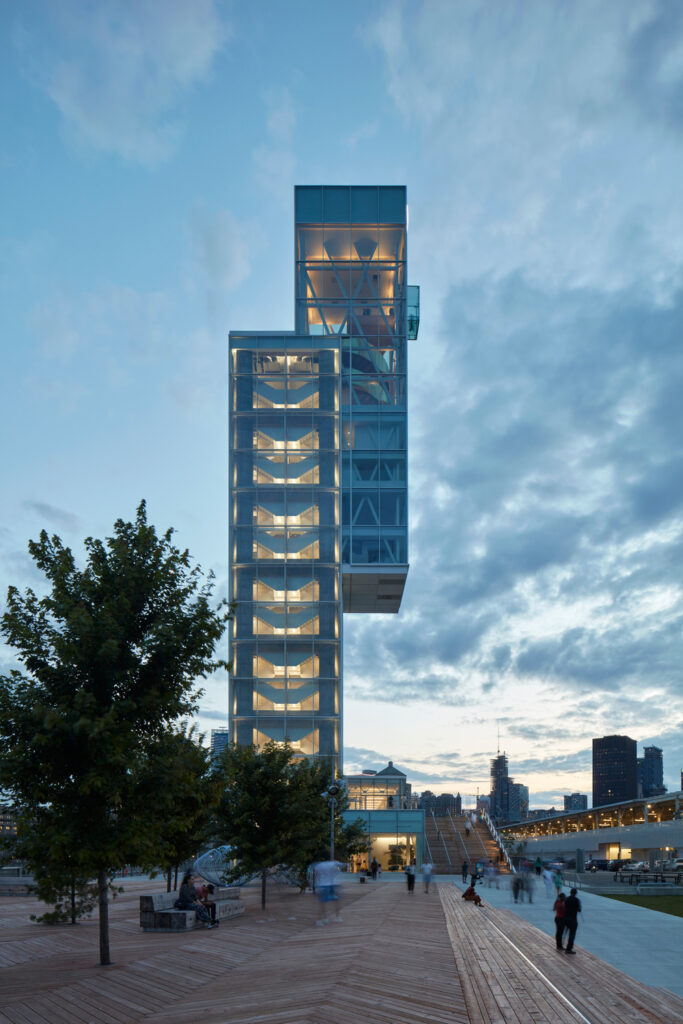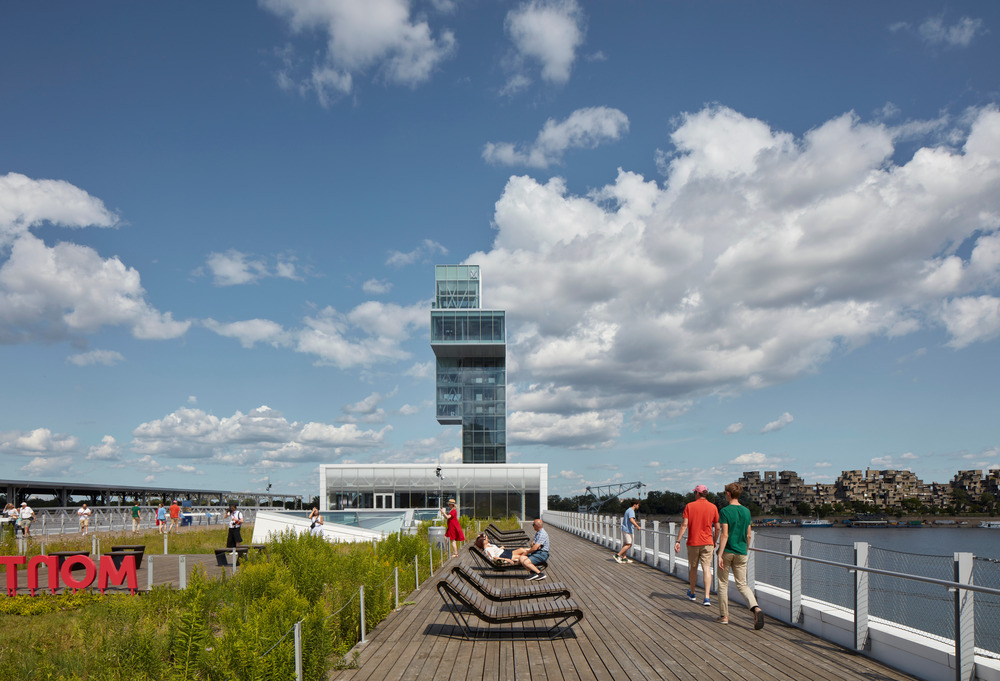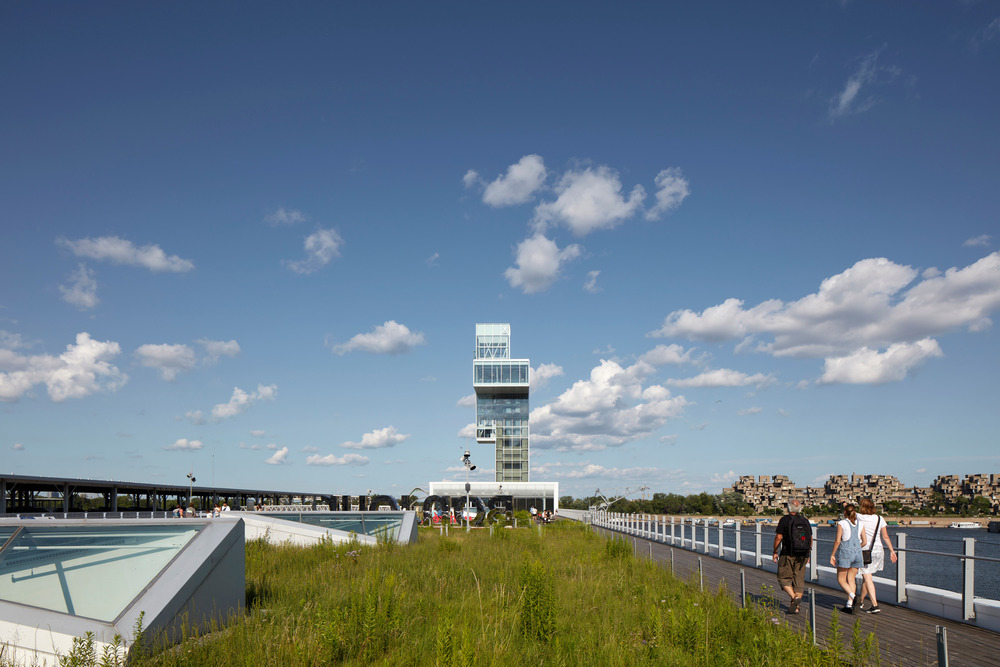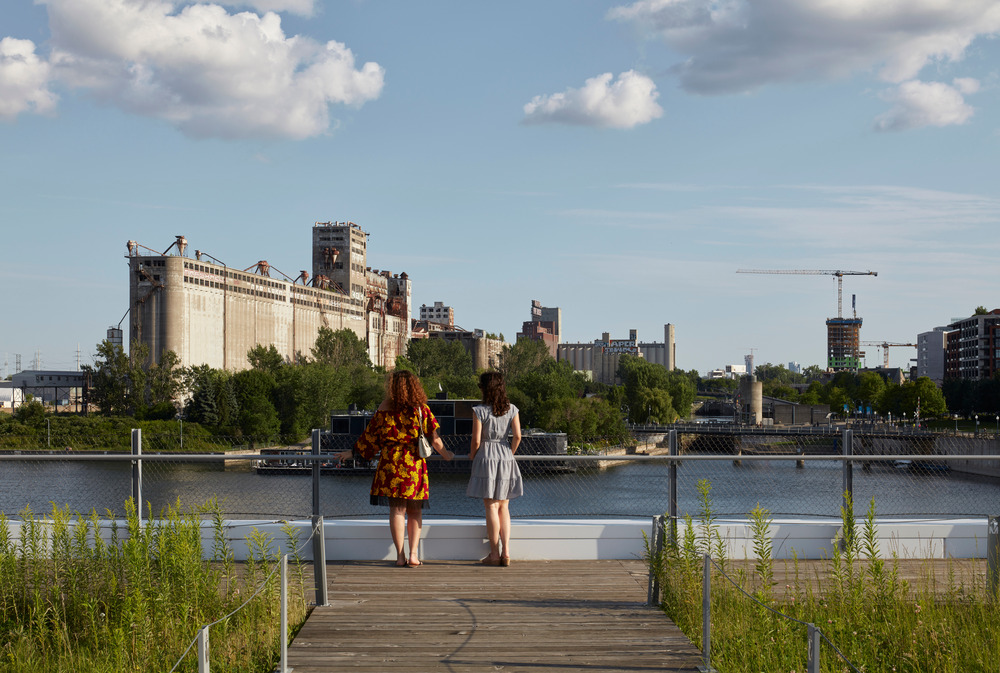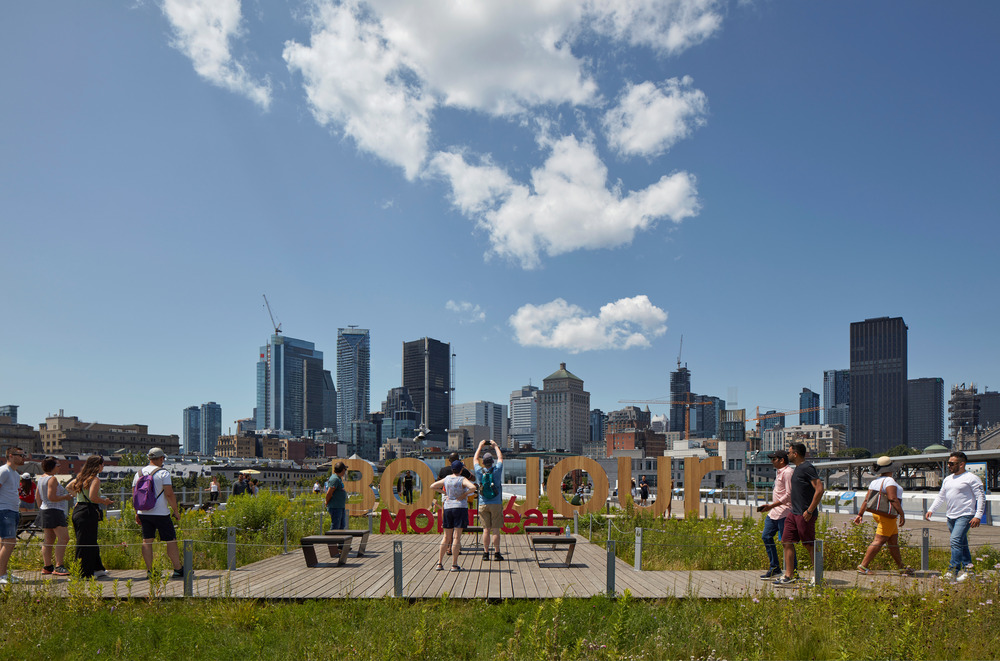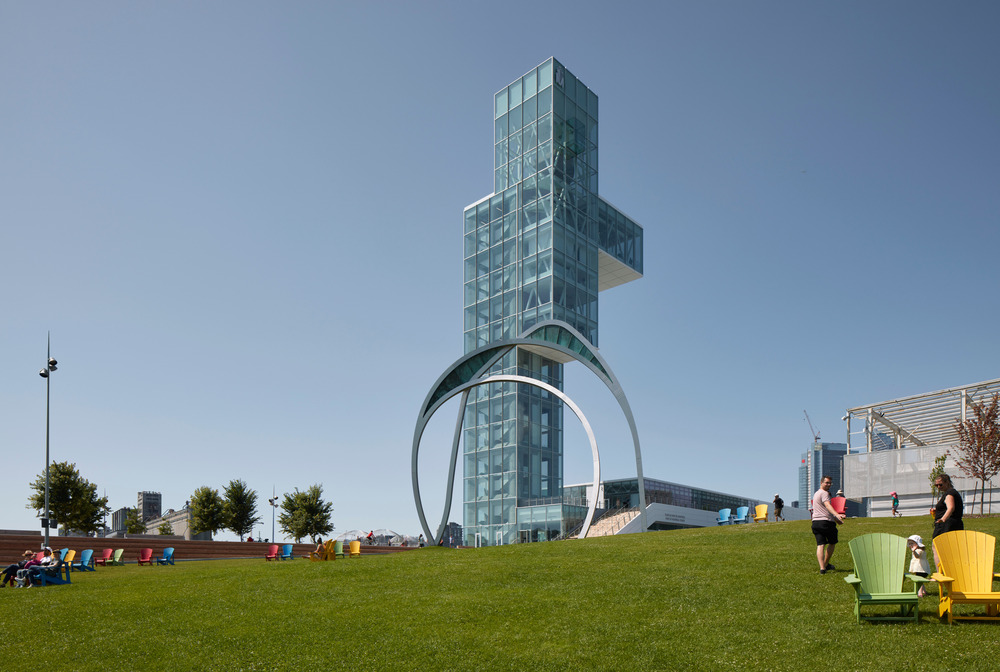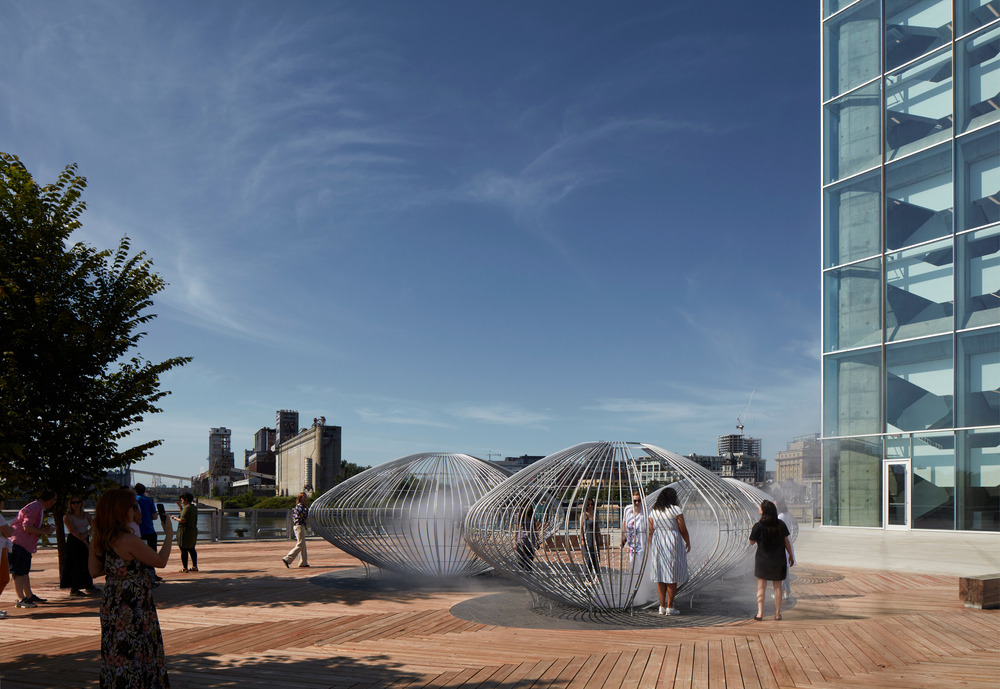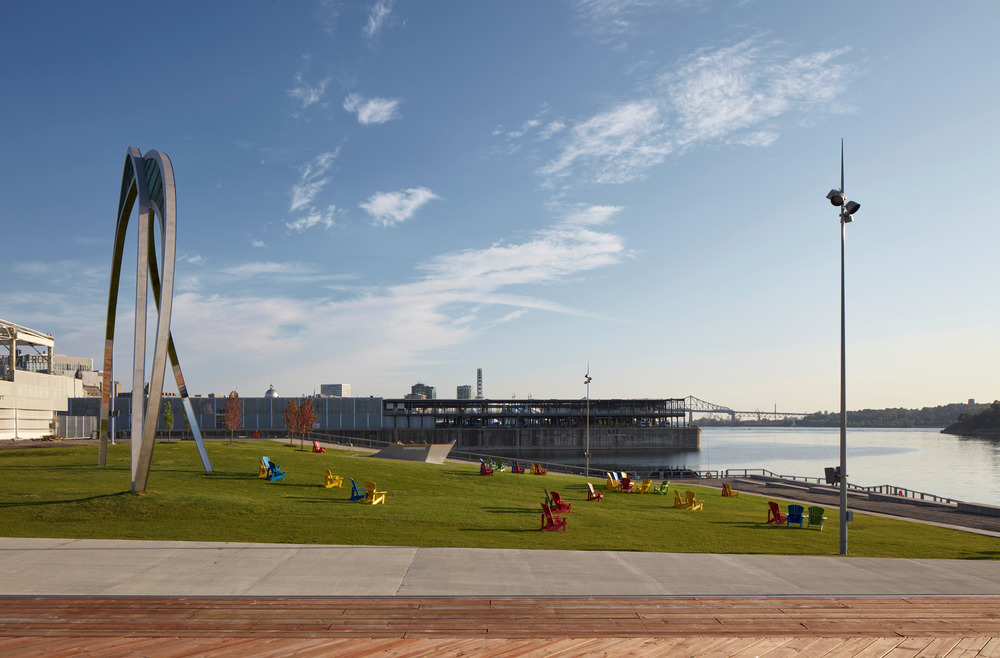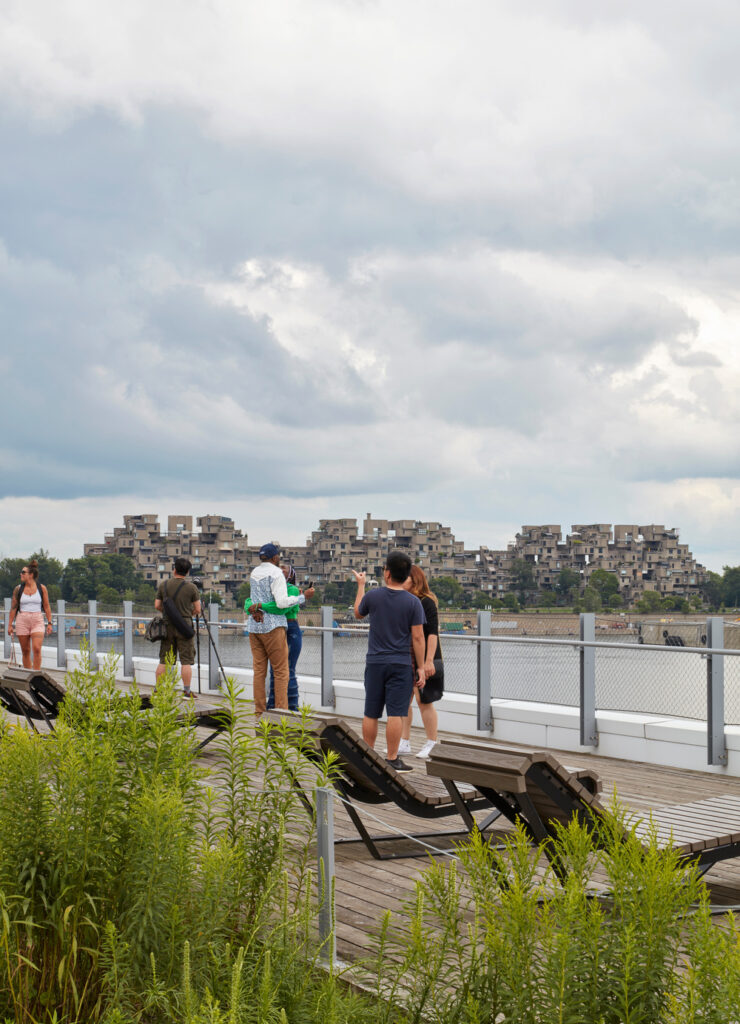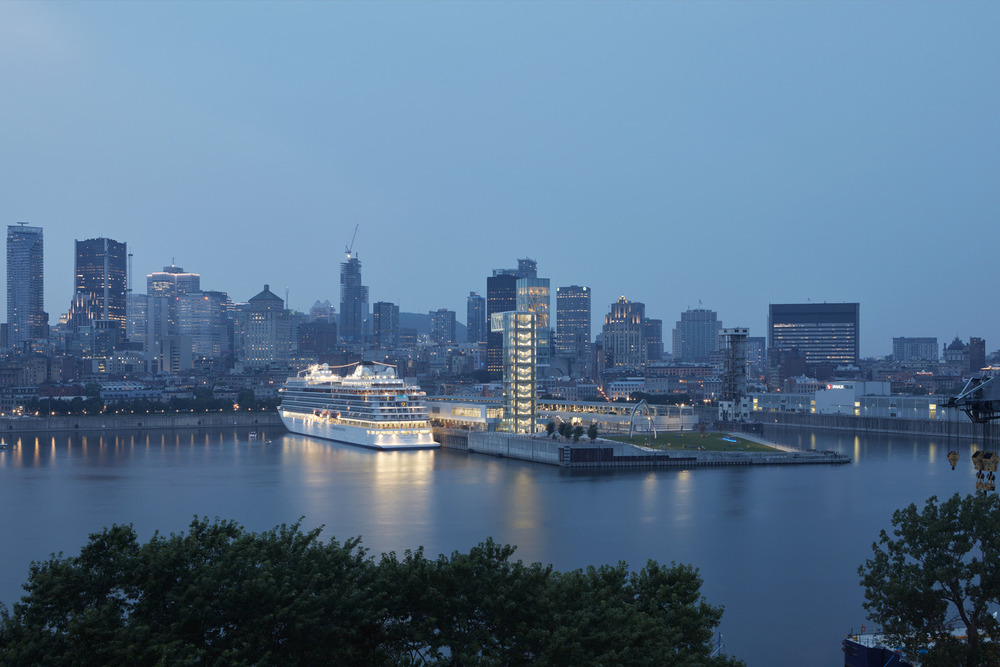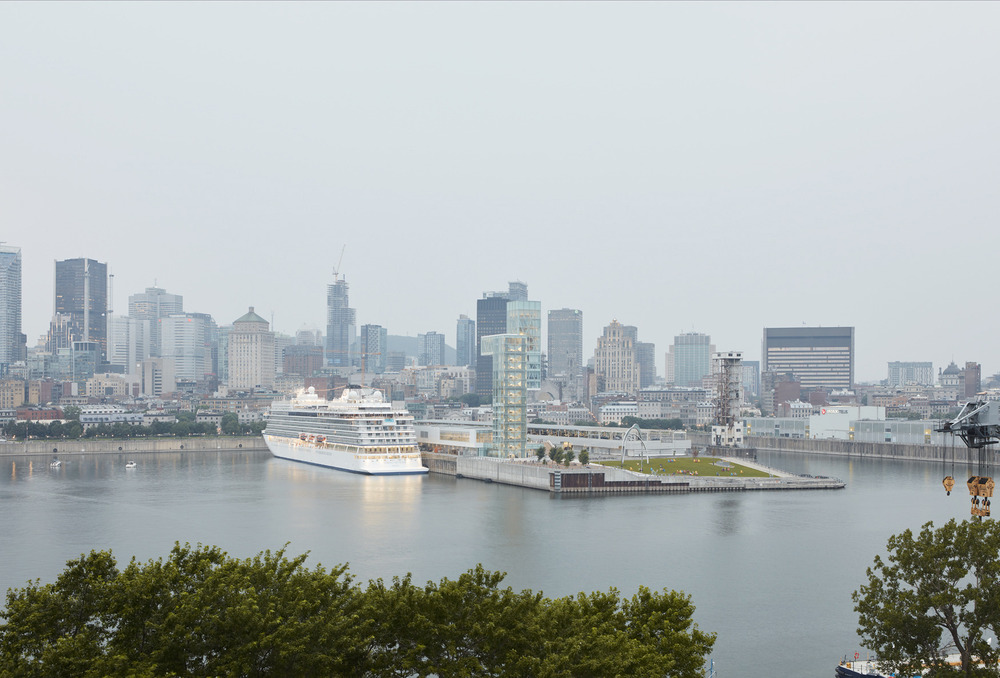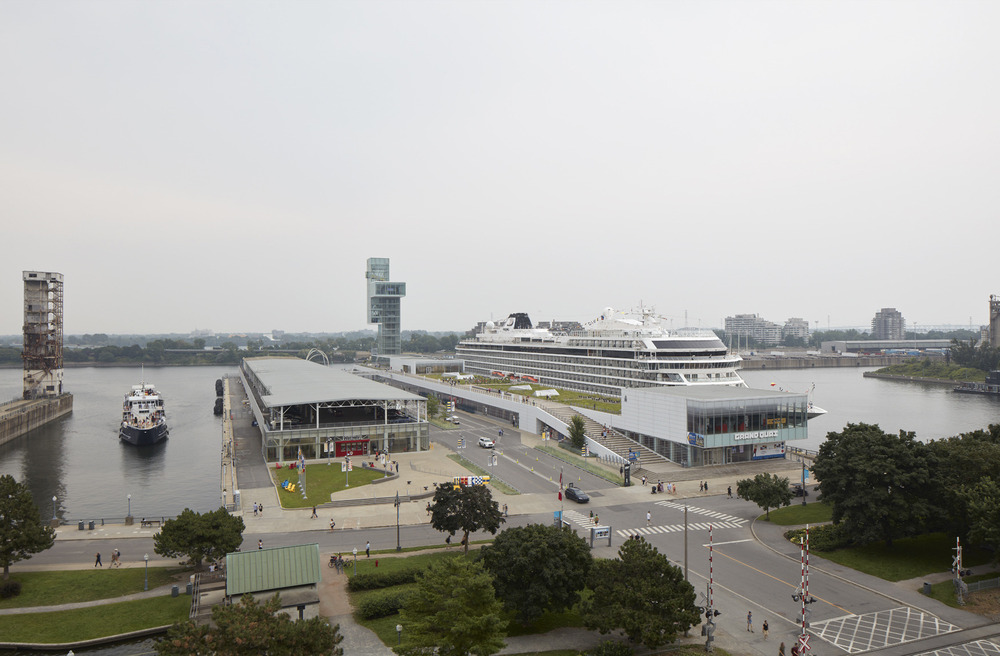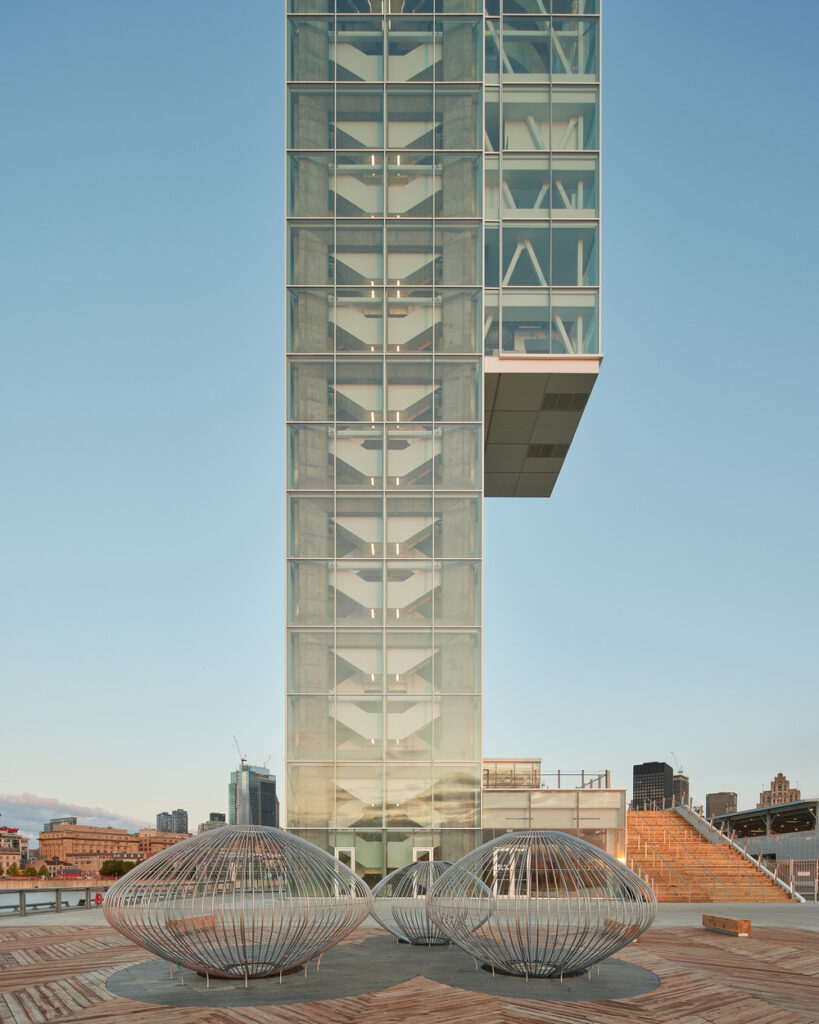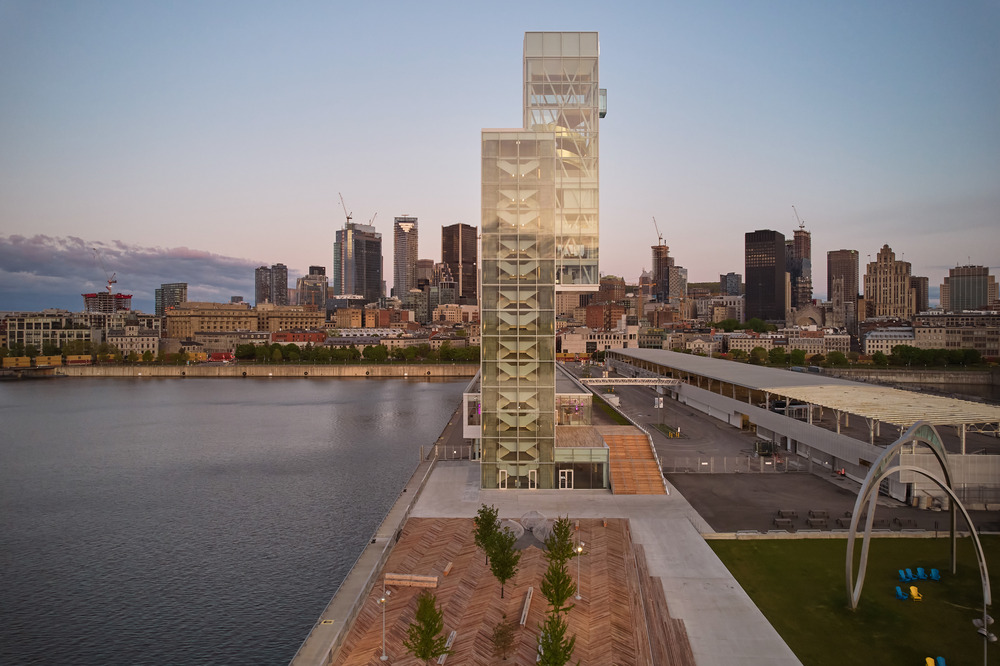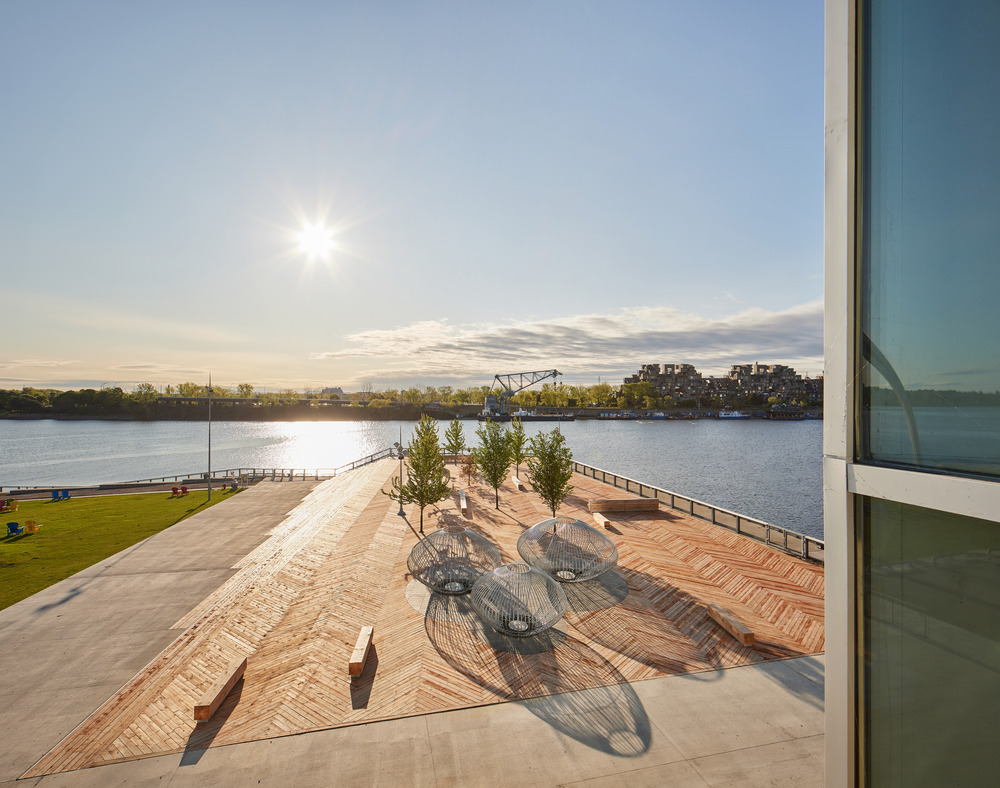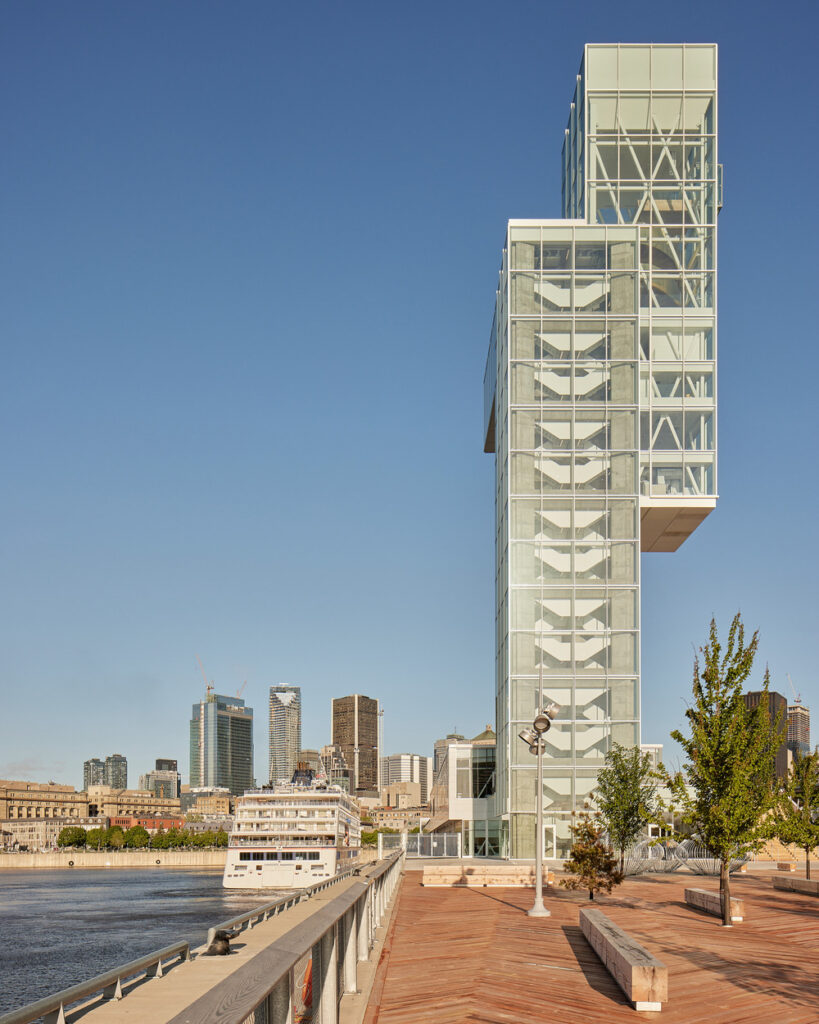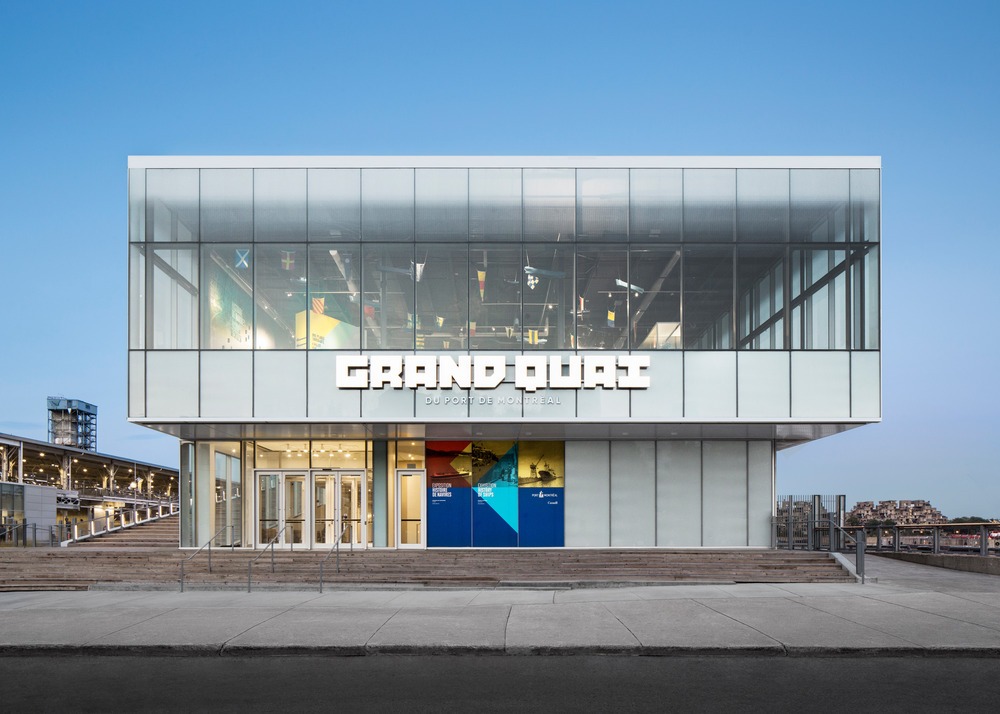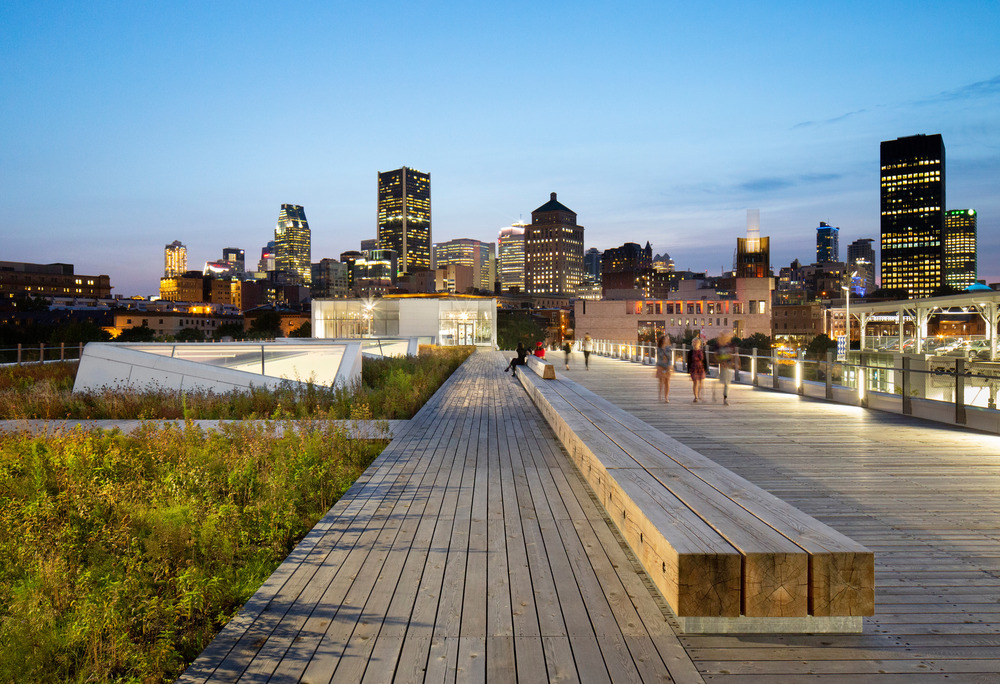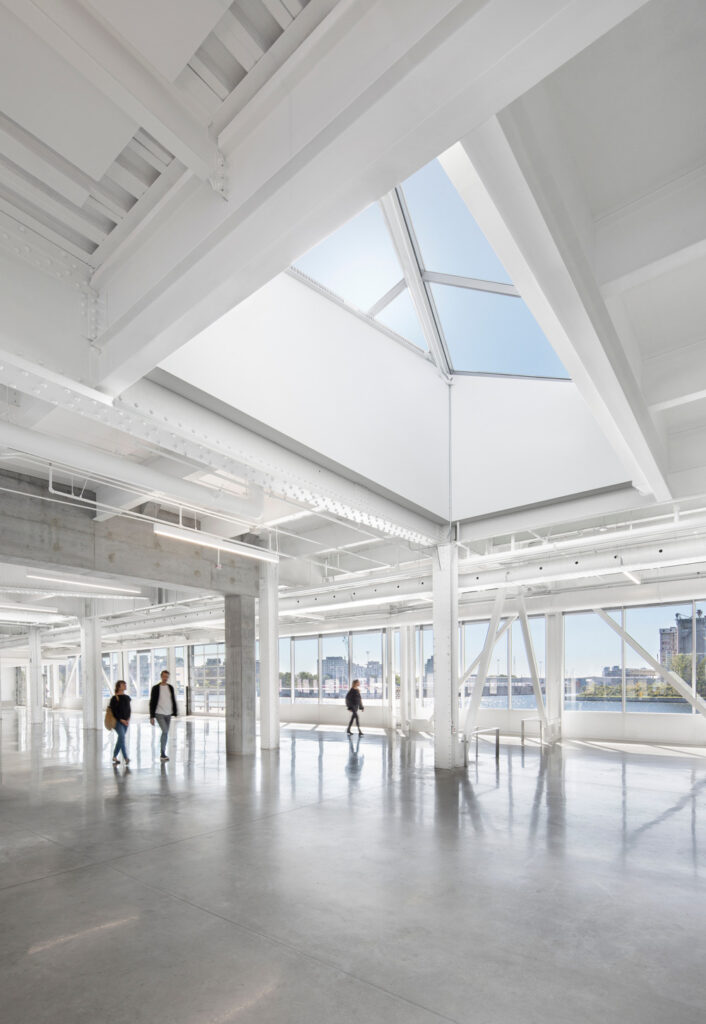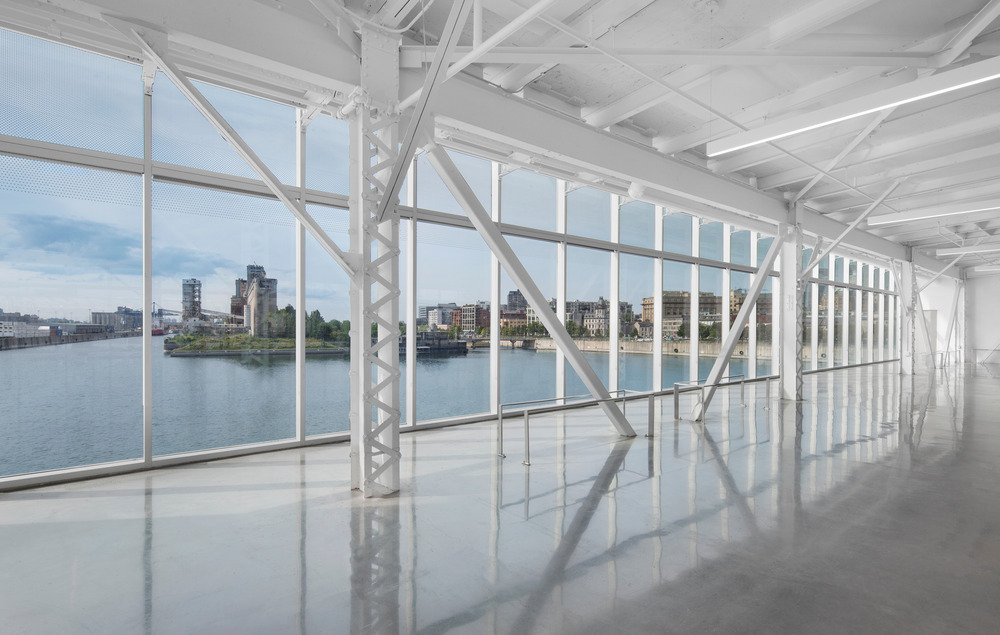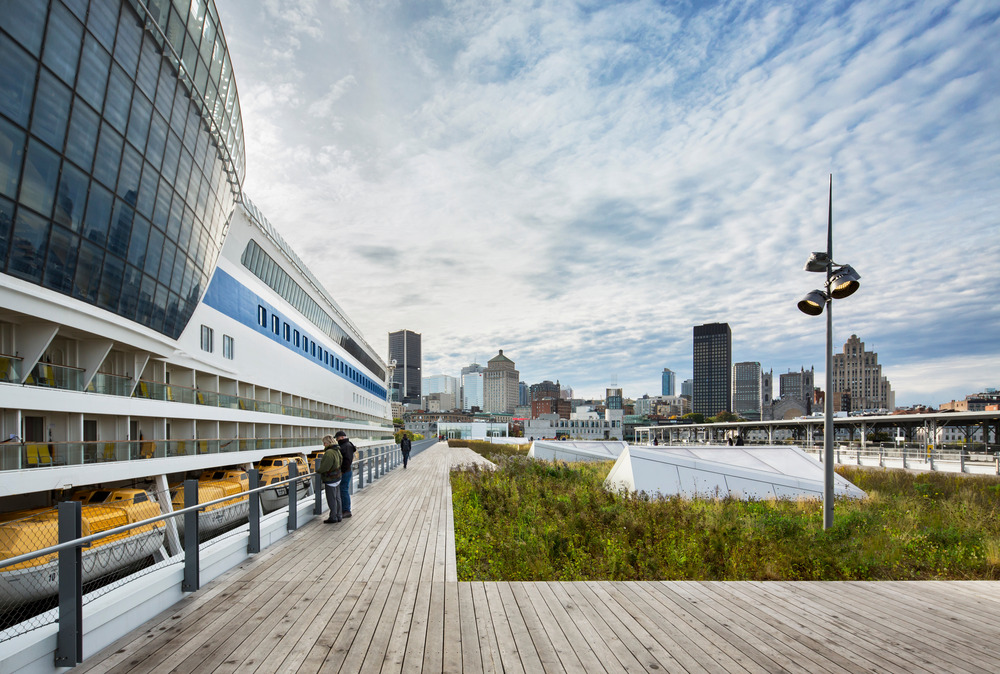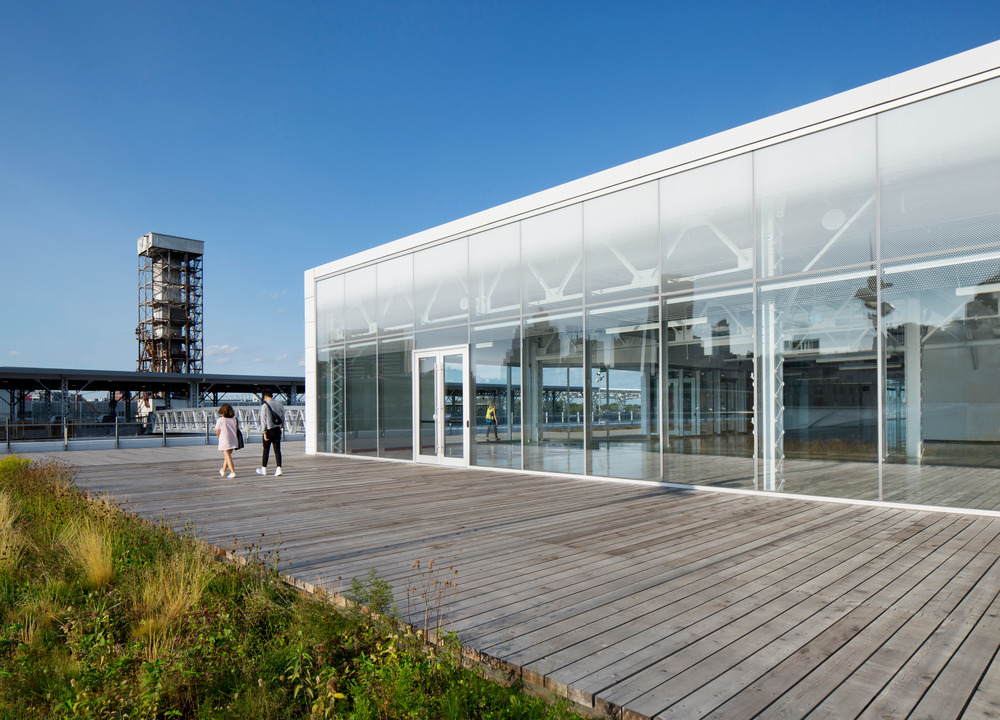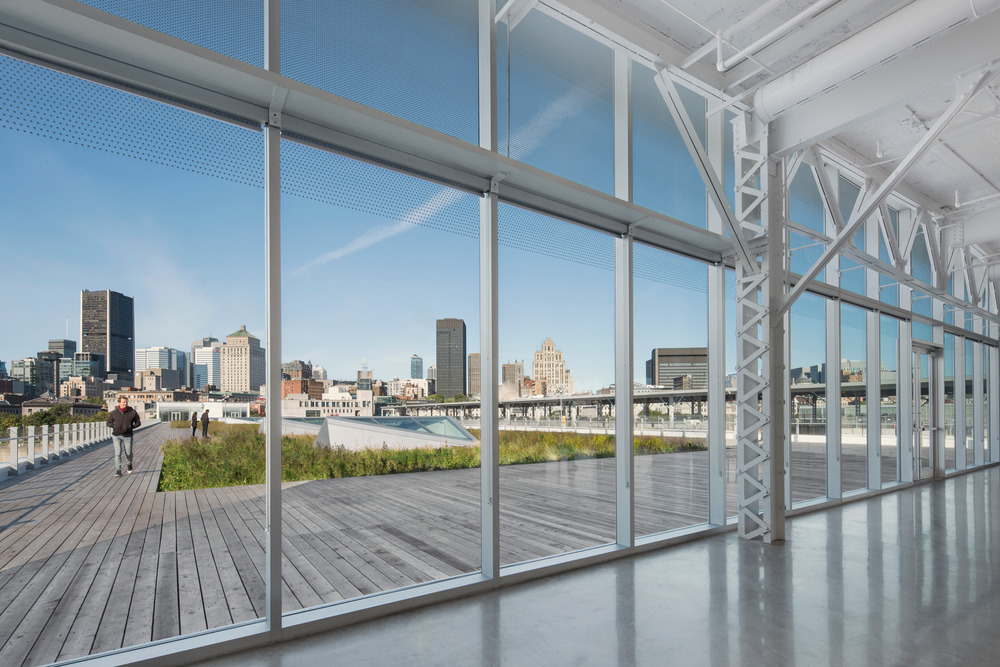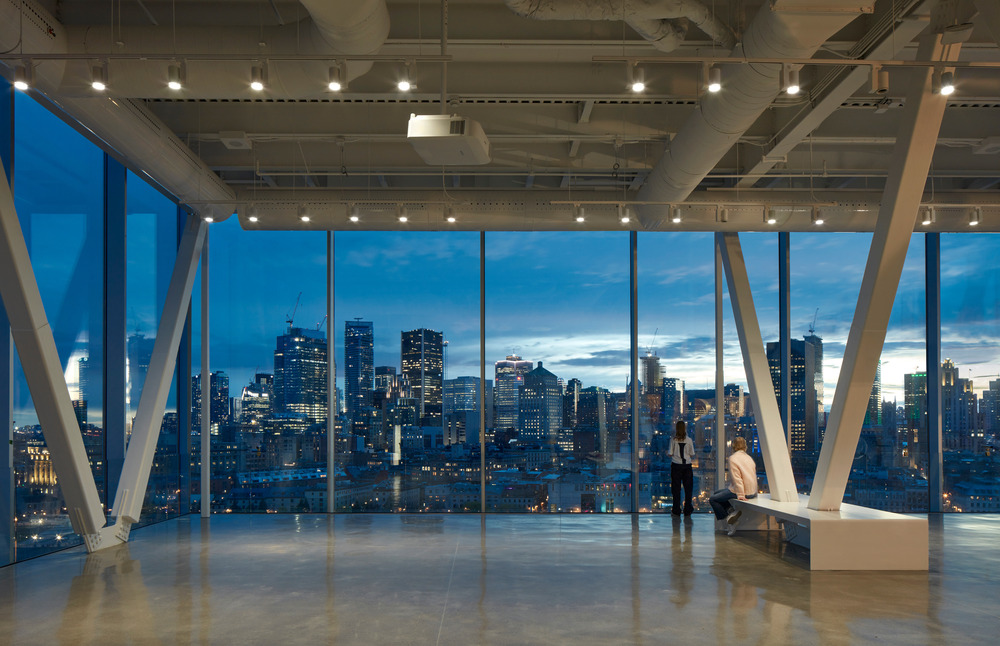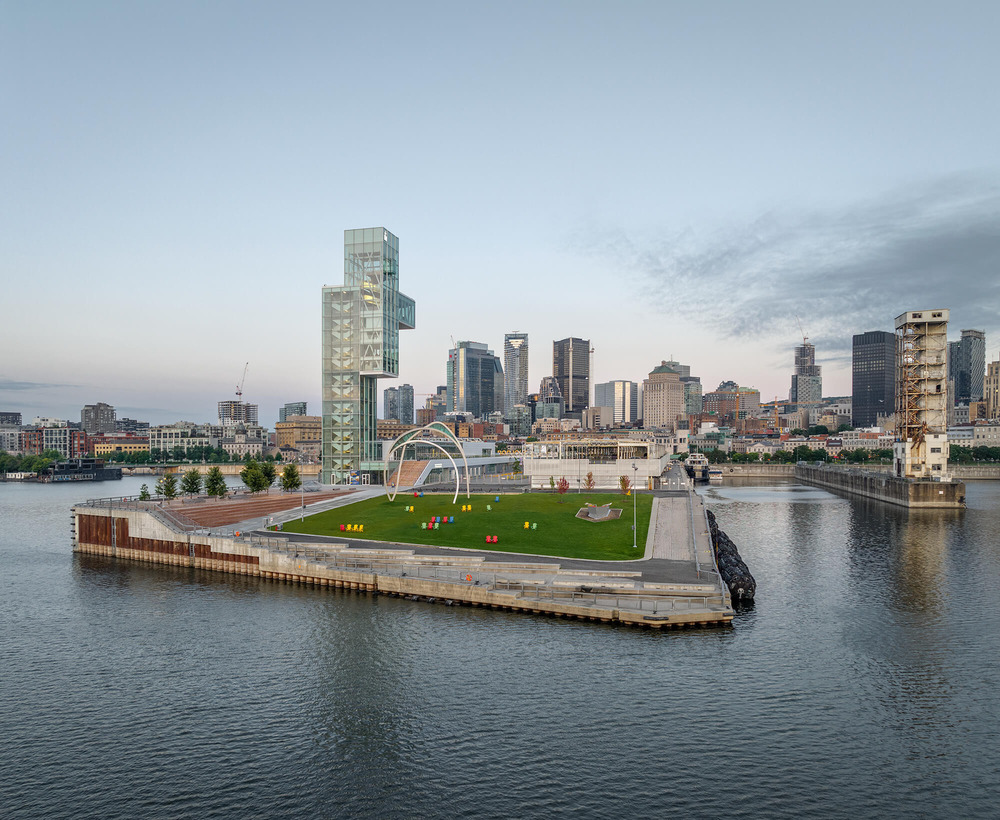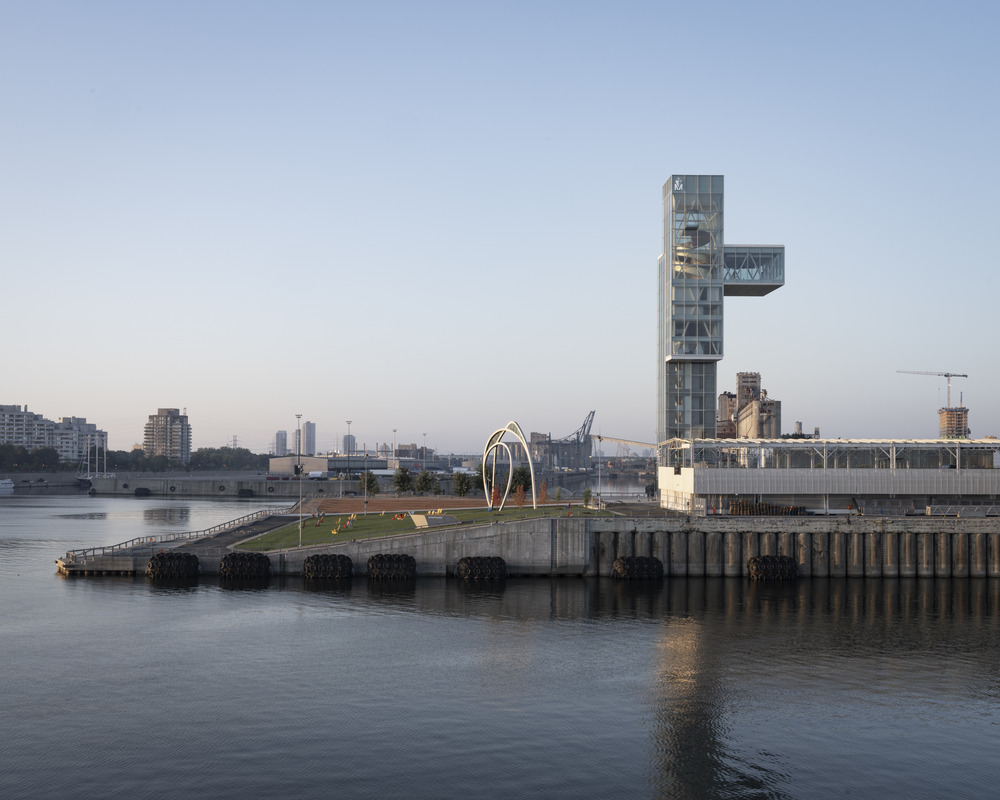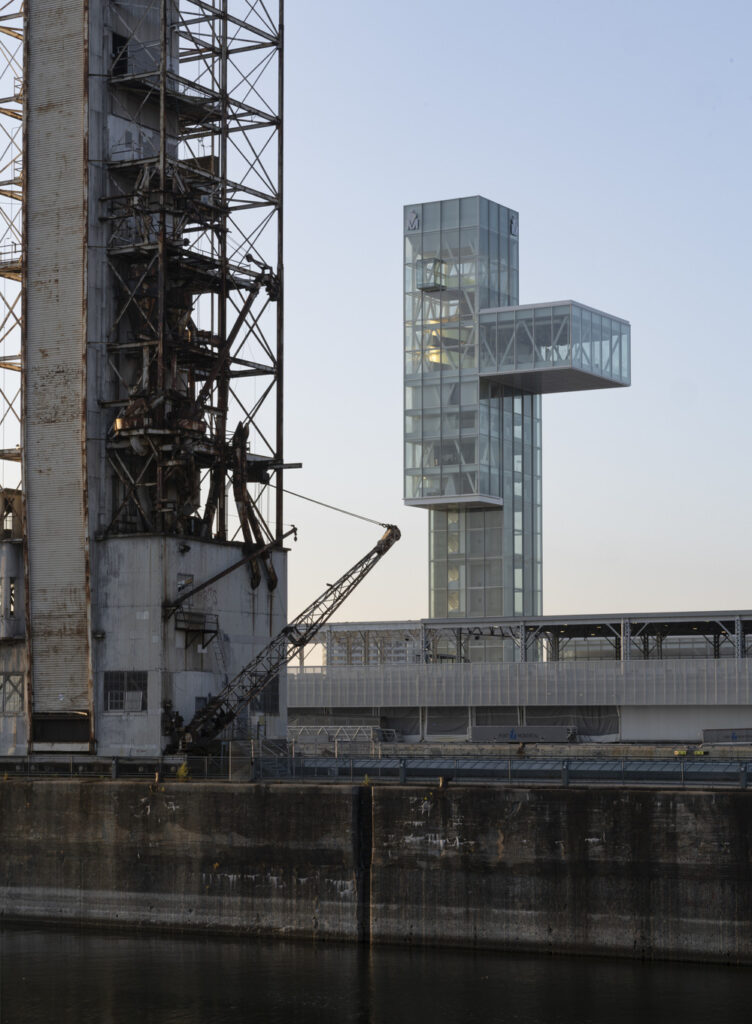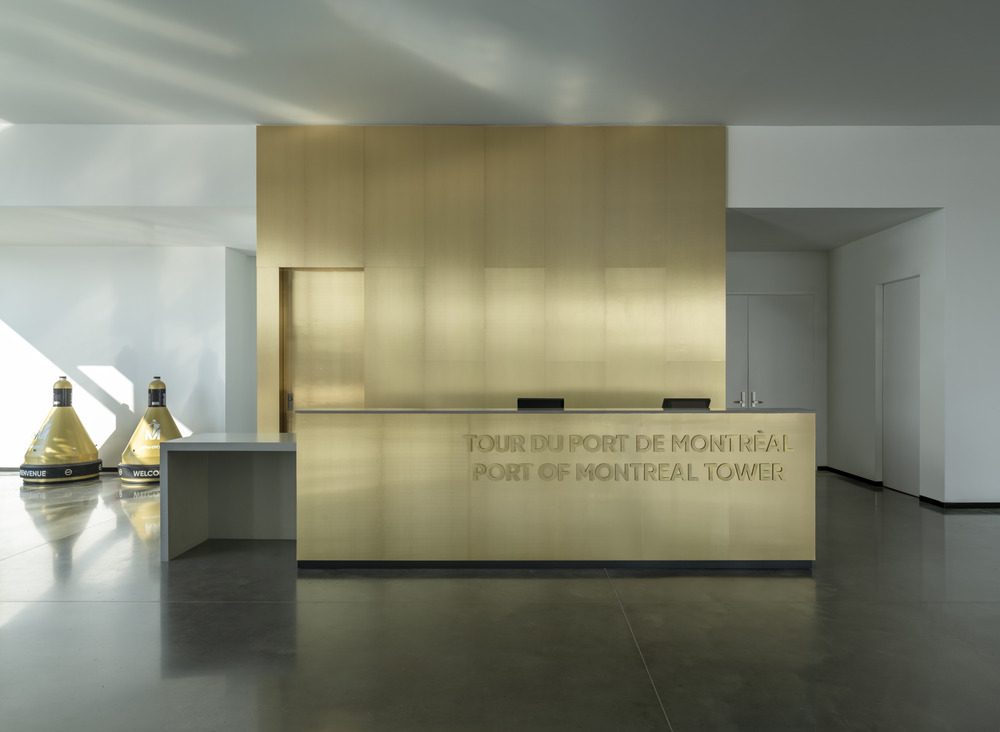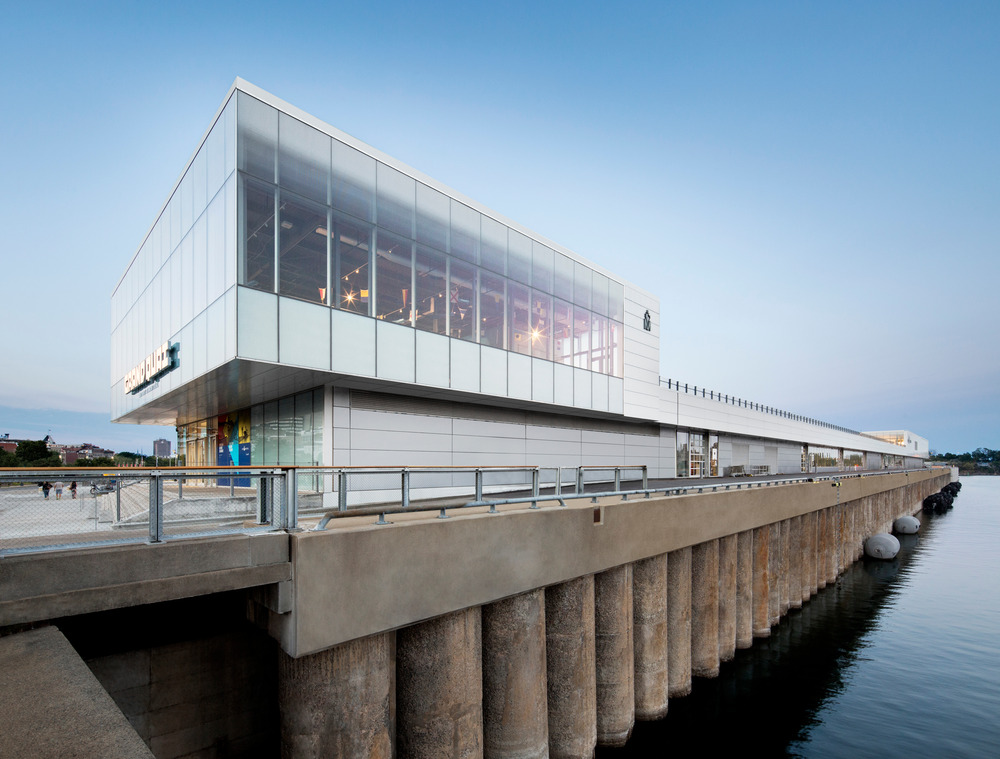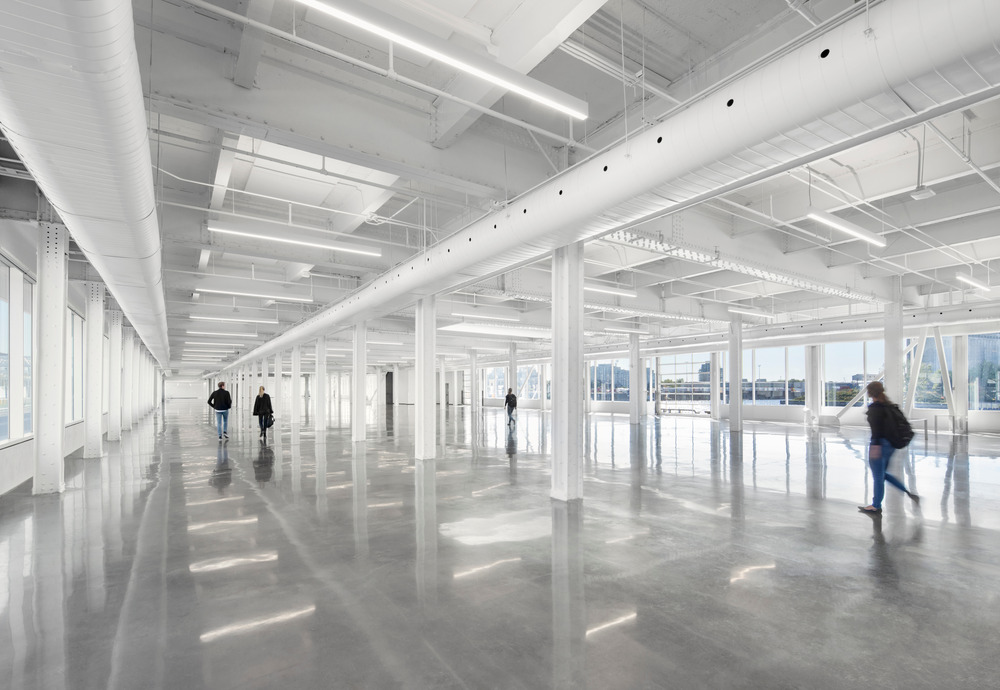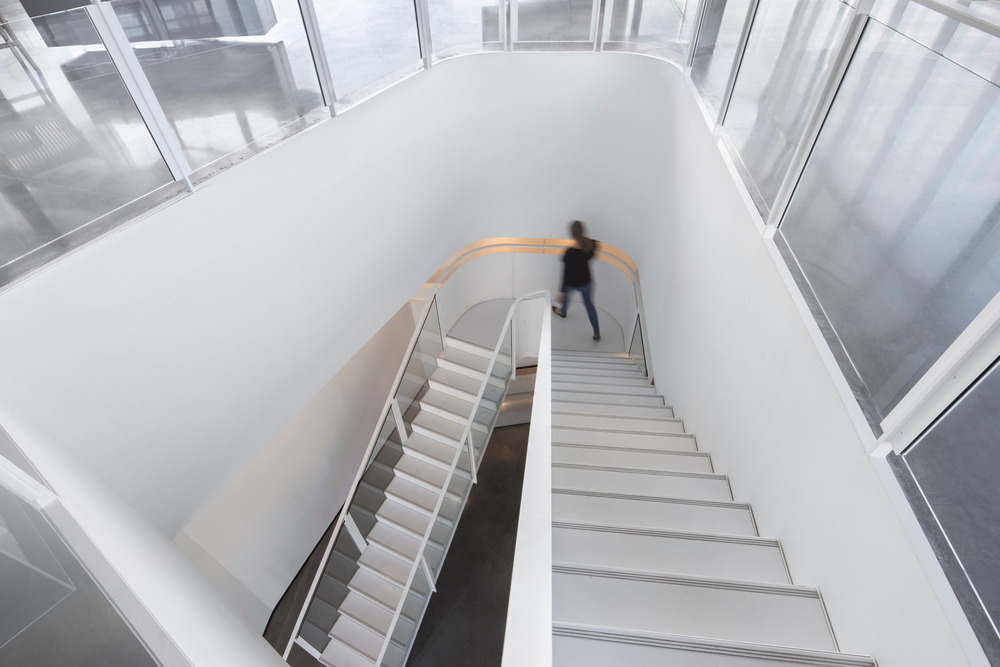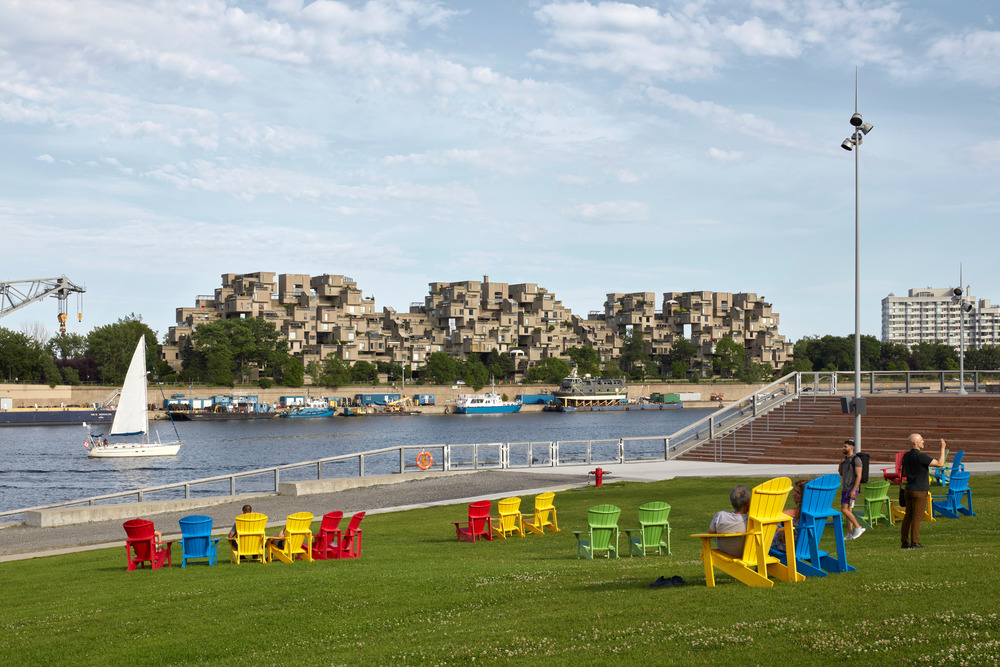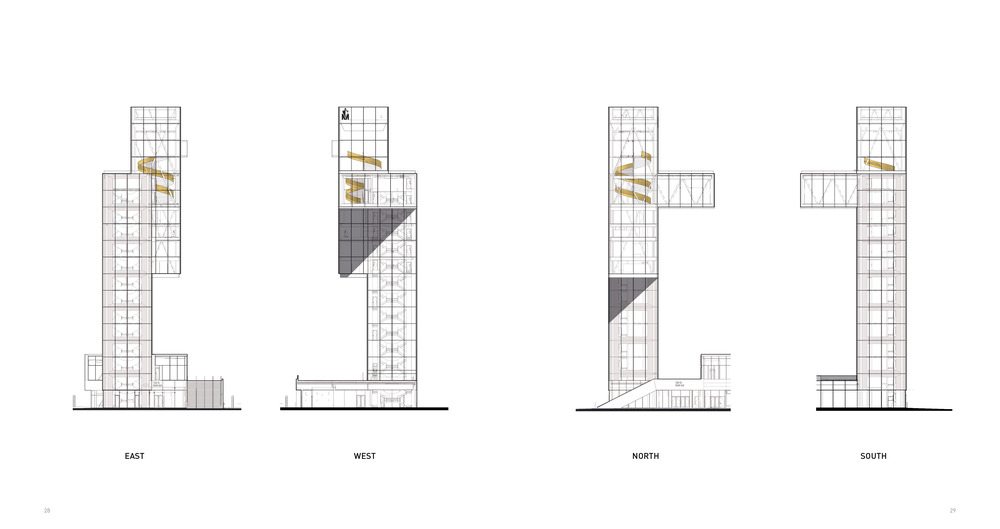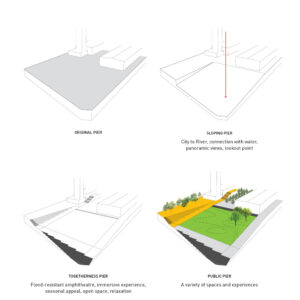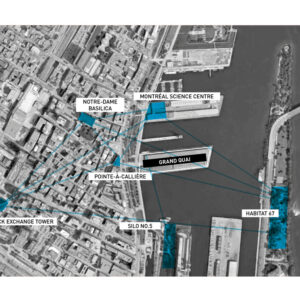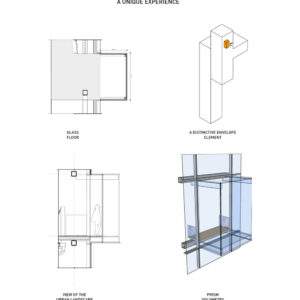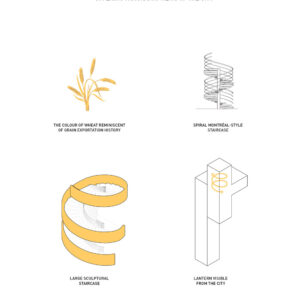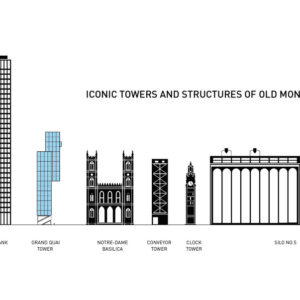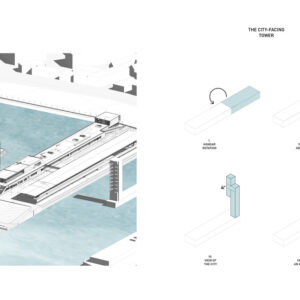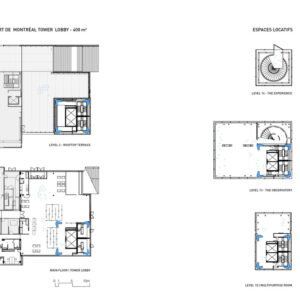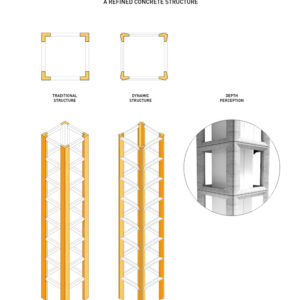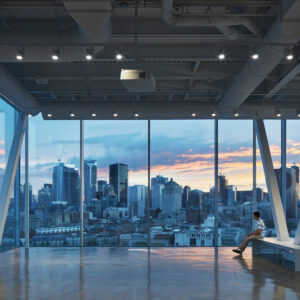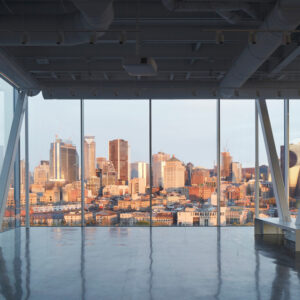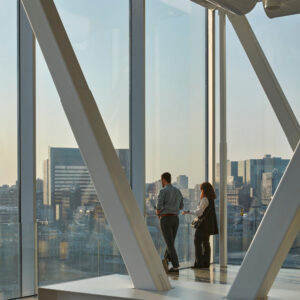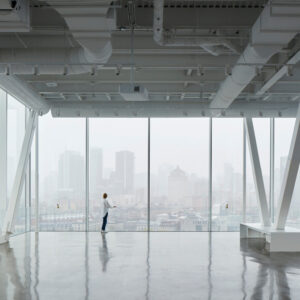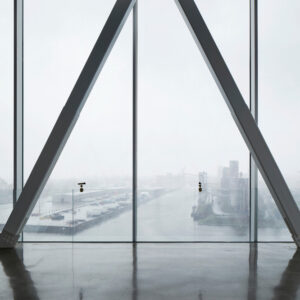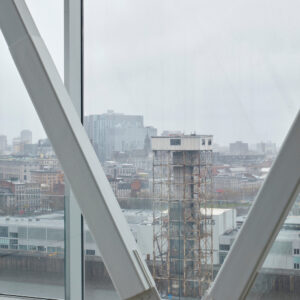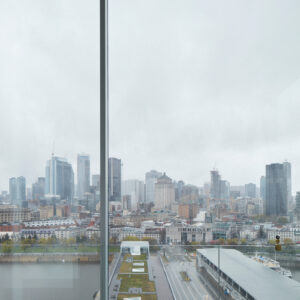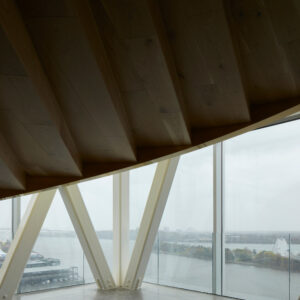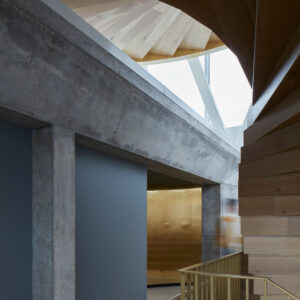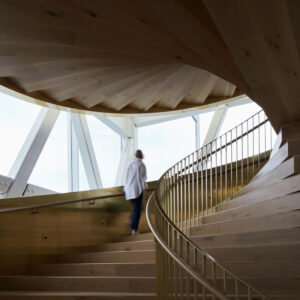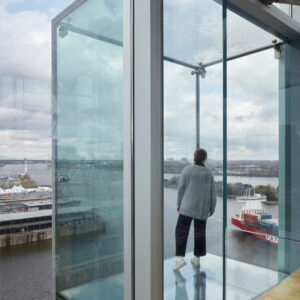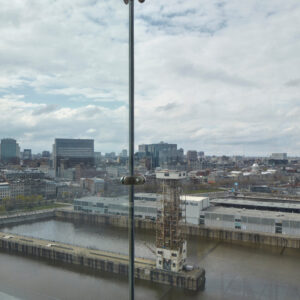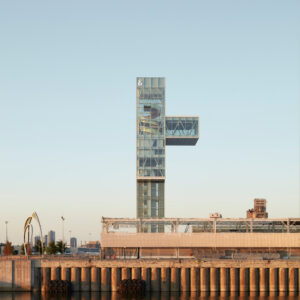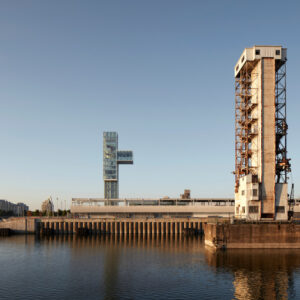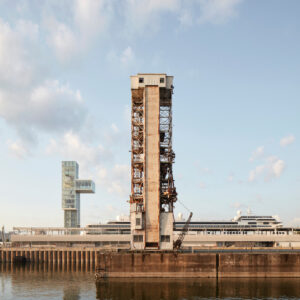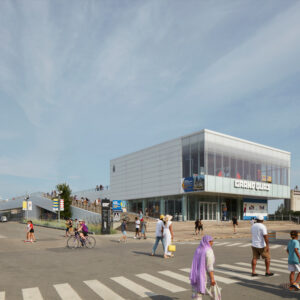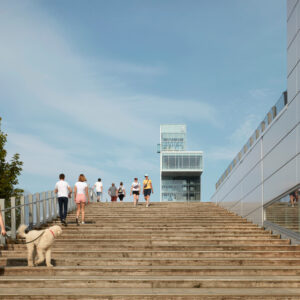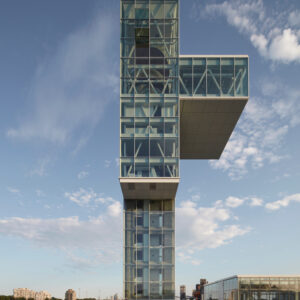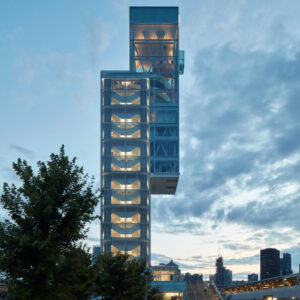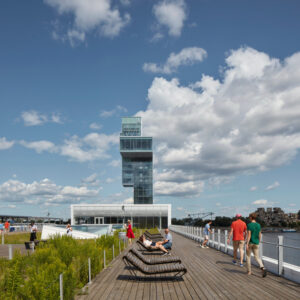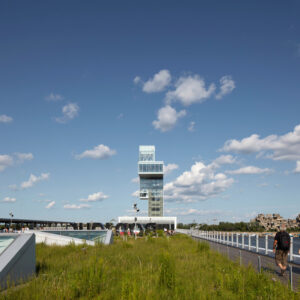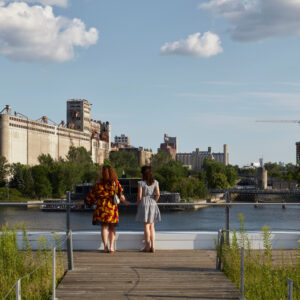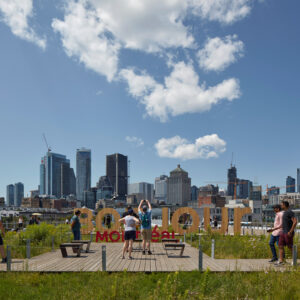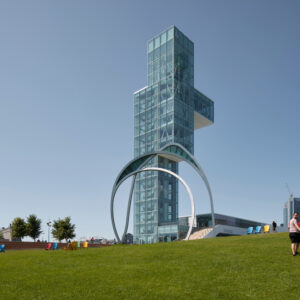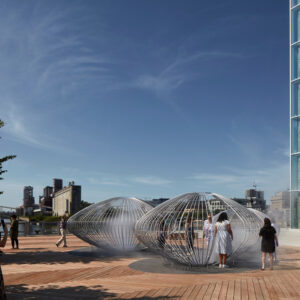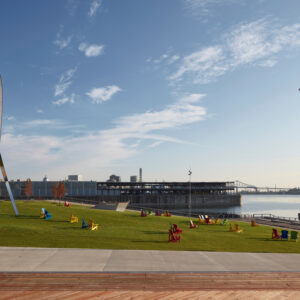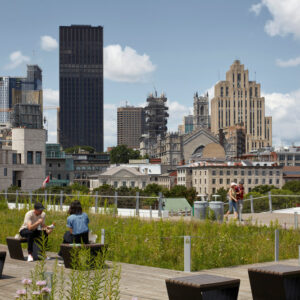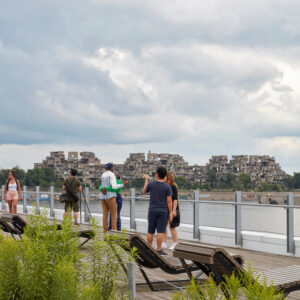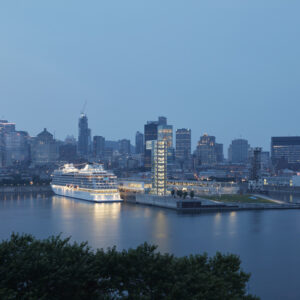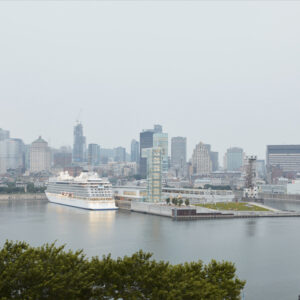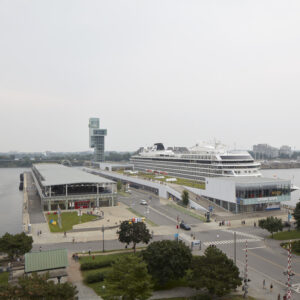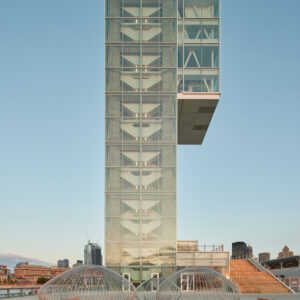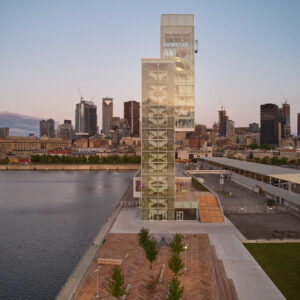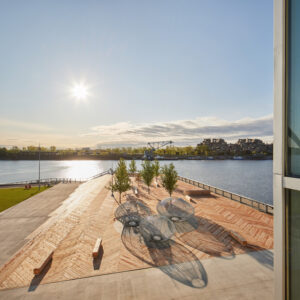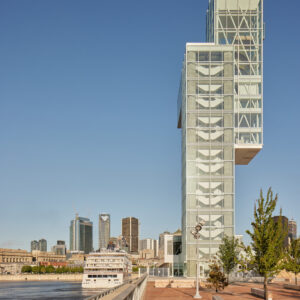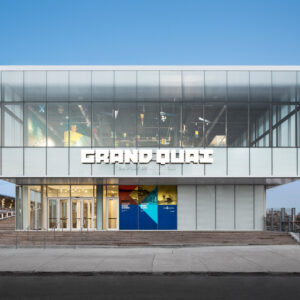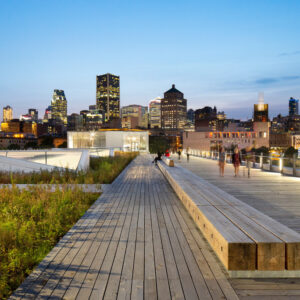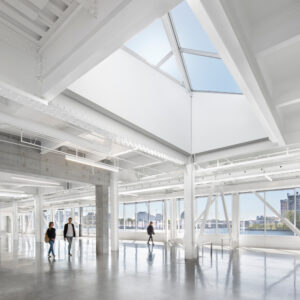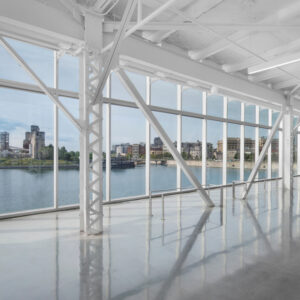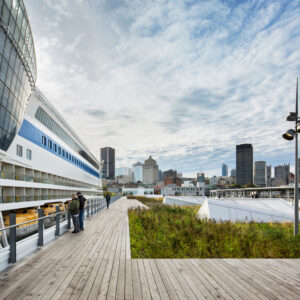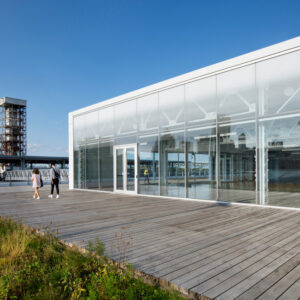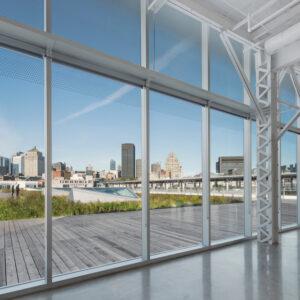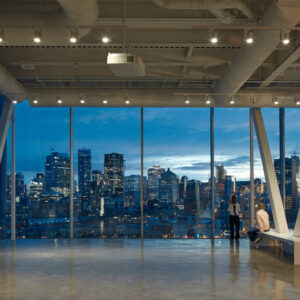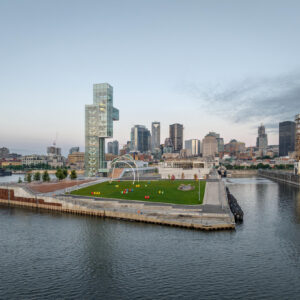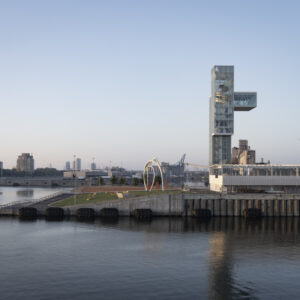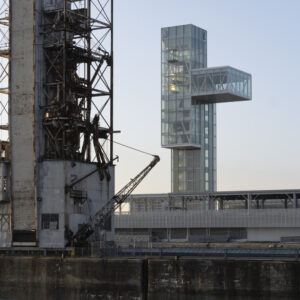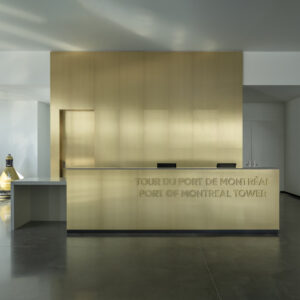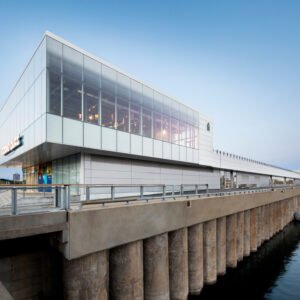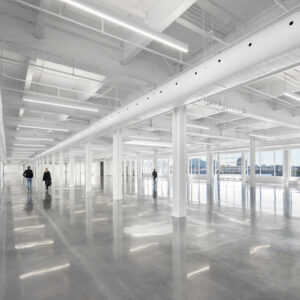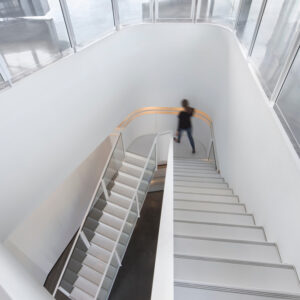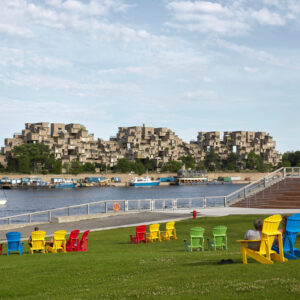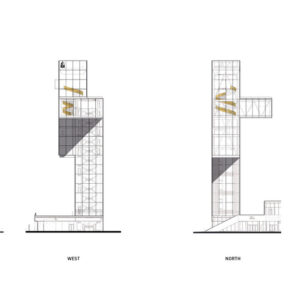
- 12 February 2024
- 162 defa okundu.
Port of Montréal Tower and Grand Quai
With the Port of Montréal Tower and its river terrace, Provencher_Roy and NIPPAYSAGE complete the transformation of the Grand Quai and bring new life to the port facility.
The Port of Montréal Tower, designed by Provencher_Roy, is the jewel in the crown of the dramatic transformation of a crumbling infrastructure complex into an exceptional public landscape. Begun in 2013, the fruit of integrated design combines architecture and landscape.
Rising 65 metres high, this new icon of the Old Port offers a spectacular view of the city and the river. Like a lighthouse, it acts as a visual landmark for visitors arriving by boat and signals the entrance to the Port. For Montréalers, it marks the presence of the quay and a large public square from the pedestrian zones of Old Montréal.
“We tend to forget, as Montréalers, that we live on an island. We had a fantastic opportunity to create a place that celebrates our two natural icons: the majestic Saint-Lawrence River and Mount Royal,” explains Sonia Gagné, Architect, Principal Partner and Lead Designer.
With its daring cantilevers, the 65-metre tall tower heralds the Grand Quai as a signature destination in Montréal for tourists and Montréalers alike. It overlooks a new elevated promenade that reconnects the city to its waterfront, anchors a redeveloped riverwalk, and creates a unique urban gathering place in the Old Port.
One of the tallest structures in the area, the Tower signals the quay and a new public space for pedestrians and visitors arriving by cruise ship. It orients visitors and creates a visual point of reference that transitions between the raised esplanade, cruise terminal, and new public space at the tip of the quay which slopes down to the river: the Place des commencements.
“We wanted to make a statement to attract Montréalers to the end of the pier thanks to quality public spaces, beautiful views from the Tower, access to the river, and a space for citizens,” explains Sonia Gagné.
Beyond lending the building its distinctive silhouette, the cantilever also opens up 360-degree views. From the top, visitors can see landmarks in all directions, including Habitat 67, Silo No.5, Basilique Notre-Dame, the Saint Lawrence River, and Mount Royal. An observation deck set 55 metres above the quay commands sweeping vistas over the city and river, offering visitors arriving by cruise ship an unforgettable introduction to Montréal. The observation deck is designed to be flexibly programmed and can double as a premier event space and reception hall.
A sculptural helicoid staircase rises from the observation deck to the belvedere, 10-metres higher, which is a jewel-like glass chamber cantilevered off the façade where visitors can step out over the water and into the spectacular view. Wrapped in gold-coloured balustrades, the staircase shines through the façade and can be seen from the surrounding city. Its form recalls the 19th-century exterior stairways that define Montréal’s streetscape. Unfurling as it rises, the sculptural gold staircase evokes the crowns of the wheat plants, the port’s main export during its heyday.
The tower’s design evokes the site’s rich industrial heritage, originally home to four giant wheat-storing hangars before becoming a cruise terminal. It takes its proportions from the low-slung port buildings but stands them on end, creating a form that resembles a grain elevator. The steel structure, as well as the structural concrete frame and core, read through the glazed façade, paying homage to the monumental industrial forms that once defined the port. Together, the core and frame add a distinctive sense of depth to the tower’s elevation.
“We chose to let the Tower’s structure be visible behind a curtain wall to celebrate the site’s industrial heritage. Adjacent to the pier stands the Tour des Convoyeurs, which was used to unload grain from ships generations ago – it’s a reference to it,” adds Sonia Gagné.
Grand Quai redevelopment background
Originally built in 1899, the Alexandra Pier in the Port of Montréal became one of the world’s busiest grain exporting hubs. The four large storage hangars which covered most of the pier’s surface were subsequently transformed into a maritime terminal for cruise ships and parking lots, the pier having been converted for automobile traffic. These transformations severed the city from its riverfront, turning the pier into a forbidding piece of infrastructure. Over time, and despite significant maintenance investments, the complex deteriorated, further disrupting the urban fabric.
Provencher_Roy won the design competition launched by the Montréal Port Authority in 2013, which sought to modernize the terminal’s facilities to meet growing demand for cruise ship docking. The architects completely rethought pedestrian and vehicular access to the site; the terminal now welcomes cruise passengers at ground level. The new circulation pattern opens up the roof of the esplanade and rationalizes vehicle traffic patterns, allowing cars to park in the hangars without disrupting the pedestrian experience.
The pier’s transformation into a new public space
Designed in collaboration with landscape architects’ NIPPAYSAGE, the newly landscaped pier gives pedestrians back their rightful place:
“The strategy was to create an understated landscape that preserves the significance of the site’s exceptional industrial history, while creating an inviting new destination for pedestrians. Simple gestures were carried out on a grand scale in order to blend in with the industrial context,” explains Josée Labelle, Landscape Architect, Partner and Founding Member of NIPPAYSAGE.
NIPPAYSAGE created a landscaped walkway on the roof of the renovated ferry terminal, using cutting-edge green roof technology and featuring more than 20,000 plants, selected through extensive research into species adapted to extreme conditions of heat, cold, and wind. Known as the Promenade d’Iberville, the walkway leads to the Place des commencements at the end of the pier via a large wooden terrace with a herringbone pattern, dotted with native trees, including Quebec maples, elms, and white pines historically used to make boat masts.
This pedestrian route completes the network of public spaces in the Old Port and, in an exemplary way, reestablishes links between the city and the St. Lawrence River.
“Our client asked for a world-class cruise terminal, and we thought we should give them more than that. By transforming a once decrepit industrial site into inclusive and accessible public spaces, we’ve breathed new life into the whole community and enhanced the city’s quality of life,” concludes Sonia Gagné.
Etiketler

